kremlinology
description: study and analysis of the politics and policies of the Soviet Union (while the term Sovietology means the study of politics and policies of both the Soviet Union and former communist states more generally)
43 results
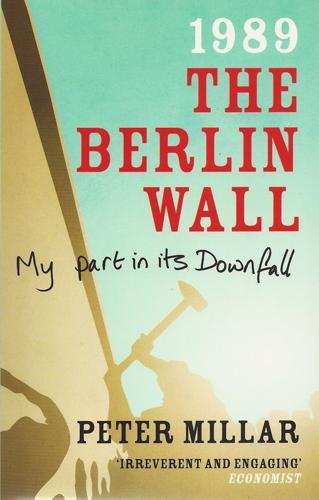
1989 The Berlin Wall: My Part in Its Downfall
by
Peter Millar
Published 1 Oct 2009
, the traditional, militarised old Prussian version of ‘Hip, Hip, Hooray!’ The East German and Soviet leaders still greeted each other on arrival and departure with the old comrades’ kiss – just as they had done in Brezhnev’s day – even if those of us who considered Soviet kisses another branch of Kremlinology couldn’t help but notice that Gorbachev puckered up as if kissing a lemon. Only a week later US President Ronald Reagan visited West Berlin and delivered a challenge to the Soviet leader that would, more than two years later, seem like a prophetic demand: ‘General Secretary Gorbachev, if you seek peace, if you seek prosperity for the Soviet Union and Eastern Europe, if you seek liberalisation, come here to this gate.
…
Andropov had suffered from kidney problems for years but they were now acute. Within months of taking the top job he almost totally disappeared from view, leaving keynote speeches to be given by other politburo members, eagerly watched by those of us who styled ourselves – like Connie in John LeCarré’s Tinker, Tailor, Soldier, Spy trilogy – Kremlinologists. We would hatch theories as to what speech on which occasion, which nuance and what announcement of policy gave hints as to who might be next in line of succession to the all-important role of general secretary of the Communist Party. The American correspondents had barely managed to get their New York anchors to pronounce the Soviet leader’s name properly, with the stress on the second rather than first syllable when Andropov finally dropped off.
…
Sooner or later – and the way things were going it looked like sooner – there would have to be a switch to a new generation. Even so, there were still a few of the older generation lingering in the corridors of power hoping for a chance to step into the big office, if they didn’t fall off their perch first. As a result every Kremlinologist in Moscow was constantly on the watch for changes in television programming – a switch from regular broadcasts to classical music was a surefire indicator someone big had snuffed it – or for Red Square being closed off at an unusual time (a preparation for a funeral). In November 1984 the defence minister Dmitry Ustinov, who had been in the job for eighteen years and was already in his mid-seventies, was added to the communal at-risk list after he failed to turn up at the annual Red Square parade to commemorate the 1917 revolution.
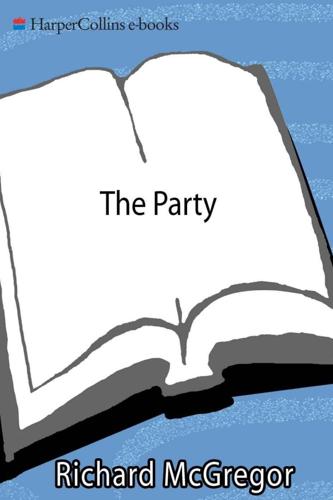
The Party: The Secret World of China's Communist Rulers
by
Richard McGregor
Published 8 Jun 2010
For visitors like MacKenzie, the only time they might stumble across the Little Red Book would be on an excursion to a weekend flea market en route to the airport to fly home. Western elites were once familiar with the order of battle in communist politics, mainly through study of the pioneering model in the former Soviet Union, and the mini-industry in academia, think-tanks and journalism known as Kremlinology. The collapse of the Soviet empire in the early 1990s took with it much of the deep knowledge of communist systems. Sinology has always been a different beast in any case, as much dedicated to Chinese history, culture, science and language as to modern politics. The transformation of China’s economy and society and its impact on the rest of the world during the same period has diverted attention from formal politics in Beijing even further.
…
The party committees (known as ‘leading small groups’) which guide and dictate policy to ministries, which in turn have the job of executing them, work out of sight. The make-up of all these committees, and in many cases even their existence, is rarely referred to in the state-controlled media, let alone any discussion of how they arrive at decisions. The membership of these groups can only be deduced by painstaking Kremlinological compilations from scouring the Chinese press, sometimes over years. ‘The only instance in the entire post-Mao era in which the [Chinese] media listed the current members of any of these groups was in 2003, when the party-controlled newspaper Wen Wei Bao in Hong Kong publicized a membership list of the Central Committee Taiwan Work Leading Small Group,’ said Alice Miller, of the Hoover Institution.
…
Abe, Shinzo, 271–2 academia, focus of, 18–19 Africa, xv AIDs campaigners, 3 airports, 19 All-China Federation for Industry and Commerce, 79 All-China Federation of Trade Unions, 213–14 All-China Lawyers’ Association, 189, 190 Aluminium Company of China, 57–61, 62, 224–6 aluminium sector, 219, 224–6 Amway, 210, 211, 212–13 Anhui beauty contest, 176 famine, 258–9 party chiefs and Idiot Seeds, 195 anti-graft body see Central Commission for Discipline Inspection anti-Japanese protests, 270–72 anti-secession law, 129 arms race, 106 Ashton, Catherine, xvi Asian financial meltdown, 45 Atrophy and Adaptation (Shambaugh), 266 Australia, xv Avon Lady, 210, 211, 213 Baidu, 187 Banister, Judith, 260, 292n Bank of China, 50, 53, 158 Bank of Communications, 52–3 banknotes, 244 banks, xi Party’s role in, 51, 52–3 reform, 50 response to global financial crisis, 68 status of, 204 see also individual banks Baoshan Steel negotiations, 54–5 Barmé, Geremie, 242, 245, 271 Basel II, 67 beauty contest, 176 Becker, Jasper, 232 Beijing mayors, 16, 144, 168 new airport, 19 Olympics, 170–71, 186 Beijing Hotel gathering, 34, 35, 38–40 Beijing University, centenary, 79, 80 Bentham, Jeremy, 17 BHP-Billiton, 58, 59 ‘big-headed babies’, 183, 184–5 black-collar class, 140–41 Bo Zhiyue, 121 Boao Forum, ix–xi Bodyguard Bureau, 12 Bond, Sir John, 52–3 Boxer rebellion, 250 Brady, Anne-Marie, 236, 268 bribery/corruption, 75, 93–100, 138–41, 172, 183, 191, 267 see also Central Commission for Discipline Inspection Burns, John, 80, 81 Bush, George Snr., 43 Caijing on bankers, 68–9 Guo Shuqing’s interview, 51 on Rio-Tinto bid, 60 on Shanghai corruption cases, 161 car number-plates, of Party officials, 14 car sales, 2009, xvi Casino Royale (film), 238 Catholic Church, 11–12 CCTV, 185, 250 cell-phones, 39 censuses, 258–9 Central Commission for Discipline Inspection, 137–8 beneficiaries of, 147 failing of, 145–7 investigation procedure, 142–5, 168–9 on Shanghai corruption cases, 160–61, 164–6, 167–9 structure and staffing, 141–2 Central Committee, 12 Central Committee Taiwan Work Leading Small Group, 21 Central Guards Unit, 12 Central Military Commission, 107 Central Organization Department, 17 appointment and promotion, 81, 82–3 and ethnic minorities and other parties, 79 internal tension, 74–6 invisibility, 71–2, 73, 74, 280n against local authority, 90–93 members’ files, 77–8 nature of, 69 origin and historical background, 76–7 on Party’s disaster relief, 192–3 refined and tightened, 41 and state enterprises, 46, 72–4, 84–9 see also nomenklatura system Central Party School, 226–8 Central Politics and Law Committee, 25, 189, 190 Central Propaganda Department, 17, 229 media control, 184, 186, 237, 248–9; see also media, censorship military propaganda, 121–2 reinforced, 41 roles of, 235–7, 248–52, 253 in Sanlu case, 189 Taiwan mission, 122 centrally planned economy, metaphor for, 37 CEOs, 89 reshuffled, 84–5 status symbol, 8–9, 10 stock options of, 100–103 Chai Junyong, 164 Chan, Hon, 80, 81 Changchun Chen’s trial in, 166 corruption cases, 139 Changzhou, 220–22 Charter 08, 261–2 Chen Ailian, 5 Chen Deming, 83–4 Chen Jinhua, 55 Chen Liangyu, 135, 136, 161 background, 155–6 confronts Wen Jiabao, 163–4 defends Shanghai, 151 investigation on, 138, 164–6 trial and prison life, 166 Chen Shui-bian, 124 Chen Tonghai, 64 Chen Xiaodan, 65–6 Chen Xitong, 144, 168 Chen Yuan, 40, 64–5, 66 on communism, 34, 37 daughter of, 65–6 ideas of, 38–9 Chen Yun, 37–8, 200, 239 Chen Zhili, 140 Cheung, Steven, 41, 176–7 children, poisoned by milk powder, 172, 183, 184, 185, 186 China Construction Bank corruption cases, 145–6 mass lay-offs, 50 Party’s role in, 51, 52 China Development Bank, 59, 65 China Executive Leadership Academy, Pudong, 29, 30 China Inc. see state enterprises China Investment Corporation, x–xi China Mobile, 84, 85, 101 China National Petroleum Corp. see PetroChina China Netcom, 84, 86–8 China People’s Political Consultative Conference, 204 China Pudong Cadre College, 29, 30 China Telecom, 84, 87 China Unicom, 84, 85 China Youth Daily, 248, 250–51 Chinalco, 57–61, 62, 224–6 Chinese Academy of Social Sciences, 109 Chongqing, corruption cases, 139 Clinton, Hillary, xiv–xv CLSA, 199 CNOOC, 54, 62 Cole, Bud, 121 communism, 18, 35, 76 redefined, 34, 37 Confucius, 32–3 congress see National People’s Congress corruption see bribery/corruption COSCO, 102 cover-up strategy, 233–4 Crillon Ball, 66 Cultural Revolution, 14 launching of, 149 Party’s verdict, 234, 245 Dai Bingguo, xii, 277n Dai Guofang, 220–21, 222, 223 dairy industry, 181–2, 183 see also Sanlu Dalai Lama, xvi Dandong, 174–5 Daqing, 113, 115 decentralization, 177–8 defence budget, 111–12 democracy Chinese leader’s interpretation, 20 demand of, 31, 261 pro-democracy protests see Tiananmen Square massacre in Taiwan, 123–4, 125, 126, 128, 130 democratic parties, 15 Dench, Dame Judi, 238 Deng Xiaoping, 74, 239 on Idiot Seeds, 195 image of, 6 as leader of liberalizers, 34 on Mao, 245 new model of reform, 41–2 partnership with private sector, 197, 198 perfects socialism, 194, 196 photos of, 38 power behind the scenes, 154 priorities economy, 106 returns to Leninist roots, 14 rural reform, 200 Shanghai policy, 150 southern tour, 41, 201–2 stratagem, xv and Tiananmen Square Massacre, 105 Dickson, Bruce, 214, 218–19 Ding, James, 227 Ding Guan’gen, 17 direct sales industry, 209–13 Director of the Beijing Representative Office (Wang Xiaofang), 95–6 Dongfeng, 216–17 Downs, Erica, 63 Dukakis, Michael, 104 East Eight Blocks, 158 East Hope see Liu Yongxing economy impact of reform on, 42–3 unsustainability of, 269 education institutions Party control of appointment, 79 textbook censorship, 235, 245–6, 249–50 elite networks, 8–9 entrepreneurs Party membership, 31, 32 in Party schools, 226–8 rich list, 205–7 see also individual members environment as benchmark for promotion, 90 central vs. local, 90–93 Party policy on, 269 ethnic protests, 111, 264 European Union, xi Falun Gong, 82, 173, 211, 212, 264, 269 famine, 229–30, 231–4, 254, 255–60, 292n Fang Ning, 33 Far Eastern Economic Review,, 46 farmers, 200, 202 Feng Jun, 227 Fengyang, 258–9 Fewsmith, Joseph, 270 Fidelity, 101 financial system, 44–6 see also banks Fonterra, 182, 183, 186–7, 188 food safety, scandals, 183–5, 191 see also Sanlu foreign bankers, ix–xii, 277n foreign enterprises joint venture, 216–17 number of employees, 214 Fortune 500, 56 France elite networks, 9 Tibet issue, xvi Freezing Point, 248, 250–52 Friedman, Milton, 40–41 Fu Chengyu, 54, 56 Fu Furong, 213 Fu Jianfeng, 170, 186 Gang of Four, 149 global financial crisis, 266 banks’ response, 68, 269 Beijing’s response, 163, 269 global financiers, ix–xii, 277n global reserve currency, xv Global Times, 272–3 Goldman Sachs, 61, 181 golf, 145 Gome, 207 Gorbachev, Mikhail, 35 government imperial officialdom, 77 secret Party rule of, 14–17, 21–5, 33 see also public sector Great Leap Forward, 231–4, 254, 255–60, 292n Lushan verdict, 243 Gu Mingzhi, Major General, 104, 108–9 Guangdong, corruption cases, 139 Guinea, xv Guo Shuqing, 50–52, 53, 67 Gutierrez, Carlos, 83 Gymkhana Club, 9 Haier, 194, 198–9, 202–3 Han Dynasty (ad 25–220), Civil Service Ministry, 77 He Guoqiang, 279n He Weifang, 22–3, 26, 125 heavy industry, 219, 221 Henan, 255–8 history, Party’s verdict, 235, 236–9, 245–6, 248–51 Ho, Herbert, 211 Holwill, Richard, 210, 211 Hong Kong, 21 Hoogerwerf, Rupert, 157 rich list, 205–7 Hope, 215 HSBC, 52–3 Hu Angang, 40 Hu Haifeng, 148 Hu Jia, 25–6 Hu Jintao, 74–5, 108, 148, 248 claims to be elected, 4 on corruption, 138–9 development policies, 178–80 domestic problems, 272 and economy/military, 105, 106–7, 116, 117 image-management, 5–6 on Mao, 246 meets Abe, 271–2 political career, 7 rivalry with Jiang, 154–5 and Shanghai, 153 speech in congress, 8 succession, 153–4, 163 on Taiwan issue, 127, 129–31 theory of, 172 titles of, 15–16, 279n Hu Shuli, 51–2, 282n Hu Yaobang, 74, 154, 248 encourages political reform, 36 rural reform, 200 Hua Guofeng, 154 Huang, Alex, 130 Huang, Yasheng, 151, 199, 200 Huang Guangyu, 207 Huang Hongfang, 32 Huang Ju, 154 Huawei, 204 Hubei, 179 Hum, Sir Christopher, 157 ‘human flesh search engines’, 180–81 Human Organization Department see Organization Department, Human Hunan, 177 hybrid market economy, xiii Idiot Seeds, 194, 195, 201 India, elite networks, 9 Industrial & Commercial Bank of China, 45, 50 inequality, 266–7 International Monetary Fund, xv internet controlled for political events, 2 against corruption, 144, 180–81 on history textbook, 245–6, 252 lack of Party website, 20–21 on Sanlu, 185 search for democracy, 20 Iraq, 116 iron ore, 58 Japan, 271–2 elite networks, 9 protests against, 238–9, 269–70 Ji Haisheng, 102, 103 Jia Qinglin, 7–8, 25, 154, 279n Jiang Chaoliang, 52–3 Jiang Mianheng, 87, 283n Jiang Ping, 41 Jiang Qing, 149 Jiang Sixian, 205 Jiang Yanyong, 239 Jiang Zemin, 107–8, 269 at Beijing University centenary, 79 careers, 81 and Chen Xitong, 144 claims to be elected, 4 defends Zhou Zhengyi, 161 image of, 6 and military apparatus, 105–6, 116, 117 and private sector, 197, 200–201, 208–9, 217 rehearses his marching drills, 104 retires to Shanghai, 163 rivalry with Hu, 154–5 Selected Works, 165 and Shanghai gang, 148–9 Taiwan policy, 128–9 takes up and hands over power, 153–4 theory of, 172 on Zhu Rongji, 43 Jiang Zhenghua, 260 Jiangsu Tieben Iron & Steel, 220–23 Jin Zhong, 148 joint venture, 216–17 journalists, 184, 190, 252 and corruption reports, 160 demand freedom, 30, 80 on local officials, 180 judges, 15, 24, 25, 93, 114, 137 June 4 protest see Tiananmen Square massacre Justice Bureau, 190 Kremlinology, 18 Kuomintang, 123–5 labour law, 214 Ladany, Laszlo, 77 Lai Changxing, 159 law firms, Party control of, 23 lawyers, 15, 25, 30, 265 Party membership, 23 in Sanlu case, 189, 190, 193 leadership battles over, 3 succession, 153–4, 163 Lee Teng-hui, 127–8 Legal Daily, on Sanlu case, 187 legal professionals see judges; lawyers legal system Party control of, 15, 22–5 PLA members in, 114 see also judges; lawyers Lenin, Vladimir establishes Orgburo, 76 ruling model, xiii, 12, 14 Lenovo, 204 ‘les énarques’, 9 ‘Li Bu’, 77 Li Changchun, 279n Li Changjiang, 183, 191 Li Datong, 235, 248, 249–52 Li Fangping, 189, 190 Li Fanping, 264, 265 Li Gang, 70, 98–9 Li Jijun, Lieutenant-General, 245 Li Jinai, General, 107 Li Ka-shing, 158 Li Keqiang, 23–4, 279n Li Lihui, 53 Li Liming, 101, 102, 103 Li Peng, 81, 148, 239 Li Rucheng, 216 Li Rui, 240–41, 242–4, 247 Li Ruigang, 238 Li Ruihuan, 253 Li Weimin (fictional), 95–6 Li Wenyao, 257–8 Li Xiaopeng, 283n Li Yongzhong, 146 Li Youxing, 142 Li Yuanchao, 72, 75, 89–90, 91–2 Li Zhaoxing, 125 Liang Jing, 179 liberal economics, 28–9 Liberation Army Daily, 107–8 Liberation Daily, 242 life style of top-ranked party members, 10 of urban citizens, 27 The Lighthorseman, 242 Lin Chong-pin, 134 Linfen, 82 Liu Baiyu, 78 Liu Mingkang, 66–7 Liu Shihui, 265 Liu Xiaobo, 261–2 Liu Yonghao, 215 Liu Yongxing, 194, 219, 220, 223–5 Liu Zhihua, 138 Liu Zhongde, 229, 237 local economy, 174–5 localities vs. central, 90–93, 172–4, 180–81 competitiveness, 175–7, 178 and new tax policy, 179–80 Lou Jiwei, x–xi, 59–60 Lu Hao, 236 Lu Weidong, 20–21 Luo Gan, 25 Lushan meeting, 243 Ma De, 93–4, 97–8, 99–100, 103 Ma Jinlong, 218 Ma Ying-jeou, 126, 130 Mackenzie, Kelvin, 18 Major, Bob, 186 Mao Yushi, 261 Mao Zedong, 105, 253 and Central Organization Department, 76 death, body preservation and verdict on, 244–6, 247 and Gang of Four, 149 and Great Leap Forward, 231 image of, 6, 246–7 at Lushan meeting, 243 nominates successor, 154 on Party and people, 13–14 status of, 241–2 market reforms, outcomes of, 42 Marketing Dictatorship (Brady), 236 McKinsey & Co, 88, 181 meals, invitation for, 71 media on anti-Japanese protests, 271 censorship, 235–6, 237–8, 247–8, 250–52 on corruption, 144, 155, 160, 161, 166 focus of, 18–19 on food scandals, 183, 184 less restriction on, 268 official campaigns on military loyalty to Party, 107–9 Party’s guidelines for, 237, 248–9 Sanlu’s PR effect on, 185 on Taiwan issue, 127 uniformed announcement of new leadership, 4 melamine, 184–5 Mengniu, 181–2 Merrill Lynch, 47, 48–9 Miao Shouliang, 206 middle class, 205, 266 money worship, 132–3 rich list, 205–7 size of, 28 milk powder case see Sanlu Miller, Alice, 21 mining, 82, 192–3 Ministry of Personnel, 80 minying, 200 Mitsubishi, 54–5 Moeller Villa, 161 money worship, 132–4 Morgan Stanley, 52, 181 Mulvenon, James, 108 Murdoch, Rupert, 17 Naipaul, V.S., 30 name cards, 70 Namibia case, 148 Nanjing, 180–81 National Day parade, 263–4 National People’s Congress, 49 1977, 44 1987, 36 2002, 153, 154, 208 2004, 129 2007, 1–4, 11–12, 67, 125, 137 2009, 24, 25 Nationalist Party, 123–5 navy, xvi NCO system, 117, 118 new conservatives, 38–9 New York Times, 245 New Zealand, in milk scandal, 188 NGOs, 211 Ni Hanwei, 31 Nian Guangjiu, 194–6, 201 9/11, 270 Ningbo, 162 Nissan, 216–17 Niu Yuqing, 146 Nixon, Richard, 19–20 nomenklatura system, 78–81 North Korea, 174, 175 novels, genre of, 144 Obama, Barack, xvi oil legacy of Daqing, 113, 115 overseas interest, 116 shortage, 63 old boy network’, 9 Olympics, 170–71, 186 one-child policy, 280n O’Neill, Jim, 277n Organization Department, Human, 71 Orgburo, 76 Ouroussoff, Nicolai, 19 Ouyang Song, 192 Pan Junxiang, 234–5 Pan Yue, 39–40 Paris, Crillon Ball, 66 Party membership as a commitment, 11 change of political attire, 66 mid-2009, xiv personal files, 77–8 promotion of, 32 students and the rich expand, 31–2 Party schools, 29, 30, 226–8 patriotism campaign, 236, 270 Paulson, Hank, xi peanut products scandals, 191 Pei, Minxin, 267 Peking University, centenary, 79, 80 Peng Dehuai, 243 People’s Armed Police, 111 People’s Daily on banking system, xi on Japan, 238 People’s Liberation Army, 103 challenges of modern society, 111–12 commercial empire, 114 dual leadership system, 117–20, 121 founding principle of, 105 media campaigns on PLA’a loyalty to Party, 107–9 modernization of, 105–6, 111 officer class, 120–21 Party’s control of, 110 propaganda, 121–2 refuses Tiananmen Square crackdown, 109–10 security and domestic duty, 111, 113–14, 115 on Taiwan issue, 128–9 personal consumption, 269 pet food scandals, 183, 184–5 Petitioner’s Village, 2 PetroChina, 61–3, 116 Ping’an, 204–5 Politburo members above corruption investigation, 147 biography of, 7–8 responsibilities of, 13 selecting of, 12 similarity of appearance and career history, 1–2 structure, 278 9n political commissar system, 118–20 political liberals, 38 political opponents controlled for political events, 2–3 less confrontational treatment of, 268 marginalization of, xiv punishment of, 232 Political Struggles in the Age of China’s Reform and Opening Up (Yang Jisheng), 254 post-Maoist governing model, xii, xiii poverty definition, 278n number of poor declines, xvii, 28 power-worship, 96 private sector, 39, 194 confusion of status, 199–200, 203–4 relationship with Party, 31, 32, 79, 193, 196–8, 200–202, 206–9, 215–19 in Shanghai, 151 see also entrepreneurs; individual companies Procrustes, 235 protests anti-Japanese protests, 270–72 to Shanghai building development, 135–7, 164, 167–8 see also ethnic protests; Tiananmen Square massacre public sector appointment, 73–5, 81, 82–3, 284–5n; see also nomenklatura system bribery/corruption, 75, 93–100, 138–41, 172, 183, 191; see also Central Commission for Discipline Inspection system in history, 77 Pudong, 150 Qian Lieyang, 143, 222 Qian Qichen, 17 Qin Yu, 156, 165 Qingdao, 202–3 Qinheng prison, 166 raw materials, 219 see also oil real estate, 155, 179 scandals, 135–7, 158–60, 164, 167 Red Army see People’s Liberation Army ‘red machines’, 8–10, 13 religions, 211 Ren Zhengfei, 204, 206 Renminbi, xv, 244 rich list, 205–7 rich-poor gap, 30 Rio-Tinto, 58–61 Robinson, Tom, 37 rural free-market, 36, 200, 202, 267 Russia China’s loan to, xv cost of disintegration, 131 Sanlu, 169, 172, 181, 182, 264 cover-up strategy, 186–7, 233 emergency meeting, 170, 171 media appearance, 185–6, 187 parent complants, 184, 185, 188–9 Party’s control of, 193 product tests, 186 trial and verdicts, 190–91 Sapio, Flora, 141, 142–3 SARS, 16, 233, 239, 268 SASAC, 86 Schapira, Paul, 61 school textbooks, censorship, 235, 245–6 security, for political events, 2–3, 263 Seeking Truth, 107 Service, Robert, xiii Shagang steelworks, 207 Shambaugh, David, 121, 265–6 Shanghai city development, 29, 162–3 corruption cases, 135–7, 139, 144, 158–61, 164, 167–9 leadership compound, 14 past and present, 149–53, 234–5 status, 138 Shanghai gang, 149–53 crashed, 166–7 in Standing Committee, 154 see also Chen Liangyu Shanghai History Museum, 234–5 Shanghai Industrial, 101 Shanghai Petrochemical Corp., 47–9 Shanghainese, 152–3 land disputes, 135–7, 158–60, 164, 167 Shao Daosheng, 98 Shao Depeng, 217 Shen Ting, 159, 164, 167–8 Shen Wenrong, 207 Shenzhen corruption cases, 181 Deng’s tour to, 41 Shijiazhuang, 174 Shirk, Susan, 129 shuanggui (double regulation), 142–3 Sichuan corruption cases, 139 earthquake, 192 Singapore COSCO in, 102 Suzhou industrial park, 83 Sinified Marxism, 67 Sinology, 18–19 Sinopec, 63–4 society, infiltrates Party, 30 Song Ping, 36 Song Xiaojun, 119–20, 125, 132 southern tour, 41 Southern Weekend, 185–6 Soviet Union disintegration of, 35, 131 nomenklatura system, 78, 79 Orgburo, 76 Party’s verdict on collapse of, 237–8 succession, 154 Stalin, Joseph, 76 Standing Committee, 13, 278–9n above corruption investigation, 147 Shanghai gang in, 154 state assets debates over, 40 Deng’s model on, 42 new conservatives on, 35, 39 state enterprises competition and profitability, 53–6 Deng’s model on, 42 new conservatives on, 39 Party’s low profile in, 21–2, 49 pay structure for CEOs, 102–3 personnel control of, 46, 68–9, 73–4, 84–9 reform, 44, 67–8 split personalities of, 53, 64 stock options, 100–101 tax from, 267 workers lay-offs, 42–3, 50 see also individual enterprises steel industry, 220, 221, 222 Stewart, Jackie, 162 Storming the Barricades (Zhou Tianyong), 69 students loans, 173 money worship, 133 view of Party, 31–2 Su Shulin, 64 Su Zhiliang, 245, 246 Sudan, 62 Suihua, 97–9, 116 Sun Jingkan, 160 Suzhou, 83 corruption cases, 139–40 Tai lake (Taihu), 89, 90, 91–2 Taiwan issue Jiang and Hu’s policies, 106–7, 127–30, 134 nationalist stand on, 131–2 nature of, 122–3 one-China policy, 127–8 Taiwanese opinions, 125–8 see also Kuomintang Tang Dynasty (ad 618–907), official vetting, 77 tax policy, 178, 179 telecommunication, 233–4 telecoms companies, 84–9 terror, 265 textbook censorship, 249–50 Thatcher, Margaret, 202 38th Army, 109–10 Thornton, John, 88 Tian, Edward, 84, 86–9 Tian Fengshan, 98 Tian Wenhua charged, 172 downfall, 188 dual responsibility dilemma, 186 leads emergency meeting, 171 titles of, 182–3 trial and charge, 190–91 Tiananmen Square massacre, 105, 253, 262 discussion suppressed, 35 impact of, 34–5, 36, 201, 202 Party’s verdict, 239 post-event investigation, 36 splits Party and PLA, 109–10 Tibet, 111 Tieben see Jiangsu Tieben Iron & Steel The Times of Deng Xiaoping (Yang Jisheng), 253–4 Todai elite, 9 Tombstone (Yang Jisheng), 229, 230–31, 232 sourcing of, 254–5 trade union, 213–14 Tsai, George, 126–7, 130 Tsang Yok-sing, 21 21st-Century World Herald, 247 ‘Twenty-Seven Perfections’, 77 UBS, 199 Unhappy China (Wang and Song), 112, 132 United Front Department, 17 United Front department, 235 United Kingsom, elite networks, 9 United States aircraft carrier patrols seas around Taiwan, 128 elite networks, 9 official appointment, 74 patriotism, 270 pet food scandals, 183, 184–5 universities, 79–80 Unocal, 54 urban citizens, 27 Urumqi, 111, 139 Vatican, and China, 11–12 vertushka, 13 voting, 11–12 wages, 56 Wal-Mart, 213–14 Wan Yanhai, 3 Wang Jianzhou, 85 Wang Juntao, 23–4 Wang Minggao, 140, 144 on corruption cases, 148 interview with, 71, 72 lack of name card, 70–71 Wang Qishan, ix, xvi Wang Shengjun, 24 Wang Shenyi, 99 Wang Shi, 207–8 Wang Weizhi, 231, 258–60 Wang Xiaodong, 112 Wang Xiaofang, 95, 96 Wang Xuebing, 158 Wang Yang, 234 Watergate scandal, 164 Wen Jiabao, xvi, 7, 279n confronted by Chen Liangyu, 163 on democracy, 20 development policies, 178–80 solves Sinopec oil dispute, 63 on Tieben case, 221 titles of, 15–16 visits earthquake zone, 192 wife and son of, 147–8 on Zhang Enzhao’s case, 145 Wen Wei Bao, 21 Wenzhou, 215, 217–18 ‘west mountain meeting’, 22–3 Wolf, Martin, 237, 269 World Trade Organization, 202, 266 Wrath of Heaven, 144, 168, 169 writers/artists, 96 Wu, Joseph, 123, 124 Wu Bangguo, 7, 279n Wu Lihong, 90–91 Wu Si, 74 Wu Xiaobo, 209 Xi Jinping, 8, 228, 279n Xia Chuntao, 247, 251–2 Xia Jianming, 30 Xiamen, corruption cases, 139, 159 Xiang river, 92–3 Xiao Chaoxuan (fictional), 95–6 Xiao Yaqing, 57, 58, 60–61 Xinhua news agency interview with Zhang Ruimin, 198 on peanut product scandal, 191 secret internal reports, 230, 253 on Tian’s downfall, 188 Xinjiang, 111, 139 Xinjiang Soldier Corps, 114 Xintiandi, Shanghai, 29 Xinyang, 255–8 Xu Guanhua, 140 Xu Haiming, 135–6, 137, 153, 157, 160, 164, 167 Xu Kuangdi, 151, 156 Xu Qinxian, Lieutenant-General, 109–10 Yan Xuetong, 104 on diplomatic policy, 132 on Hu’s policies, 107 on military, 122 on money worship, 132–4 on Taiwan issue, 131–2 Yan’an rectification, 77–8 Yang, Andrew, 120 on Taiwan issue, 122, 126, 129 Yang Bin, 206 Yang Jiechi, 277n Yang Jisheng, 229–31, 232, 239–40, 252–6, 258, 259–61, 265 Yang Mianmian, 203 Yang Ping, 39, 40 Yang Rong, 206 Yang Shangkun, 239 Yang Yuanqing, 204 Yingkou, 175 You Ji, 121 Youngor, 216 Yu Dehong, 232, 255–7, 260 Yu Jianrong, 179 Yu Jie, 246–7 Yu Minhong, 227 Yu Qiuli, 113 Yuan Weishi, 70, 78–9, 249–50, 252 Yuanhua case, 7–8 Yung Chunchang, 119 Yunnan, 181 Zeng Qinghong, 74, 81–2 Zhang Baoqing, 170, 173 Zhang Chunjiang, 88 Zhang Dahong, 216 Zhang Dejiang, 208–9 Zhang Enzhao, 145–6 Zhang Peili, 147–8 Zhang Quanjing, 75 Zhang Ruimin, 194, 198, 203 Zhang Yimou, 121–2 Zhao Ziyang, 80, 154, 254 encourages political reform, 36 image blackout, 35 rural reform, 200 Zhejiang, 209 Zheng Bijian, 106 Zheng Enchong, 135, 137, 159, 161, 167 Zheng Xiaoyu, 183 Zhengtai Group, 218 Zhou Enlai, 113, 123, 253 Zhou Qiren, 220, 223 Zhou Ruijin, 31, 154 Zhou Tianyong, 69 Zhou Yongkang, 24–5, 81–2, 279n Zhou Zhengyi, 157–8, 159, 161–2, 167 Zhu Feng, 62–3 Zhu Peikun, 32 Zhu Rongji, 148 careers, 81 financial system reform, 44–6 misread by Western leaders, 43 state enterprise reform, 44 visits Huawei, 204 Acknowledgements Journalists rely on the charity, goodwill and democratic impulse of people the world over.
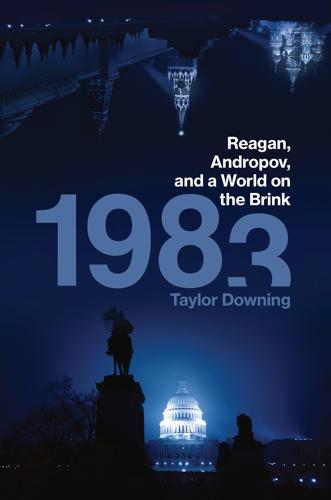
1983: Reagan, Andropov, and a World on the Brink
by
Taylor Downing
Published 23 Apr 2018
The world waited to see what Andropov’s rule would bring. In the 1970s and 1980s, Western observers of events behind the closed doors of the Politburo and the Central Committee of the Communist Party of the Soviet Union were known as Kremlinologists. They tried hard to figure out who was on his way up and who was on his way down in the secretive world of the Soviet hierarchy. The Kremlinologists were out in force at Brezhnev’s funeral. The dignitaries at the funeral included Vice President George Bush and Secretary of State George Shultz, West Germany’s President Karl Carstens, French Prime Minister Pierre Mauroy and British Foreign Secretary Francis Pym along with four princes, thirty-two heads of state and thirteen other foreign ministers.
…
However, the doctors were still encouraging about his prospects, and Andropov managed to keep up with his relentless workload. His son remembered that he still hoped he had several years left, to complete some of the reforms he had started.1 The health of the senior leadership of the Soviet Union had been of concern for some time and was not just the subject of much speculation by Kremlinologists looking in from the outside and trying to follow the ups and downs. In March 1983, the elderly members of the Politburo discussed in secret their own concerns about the effects on themselves of pressure of work. It was proposed that the working day be limited to nine-to-five and that members attend fewer evening engagements and receptions.
…
Edgar 24 House Un-American Activities Committee (HUAC) 24 Howe, Sir Geoffrey 211, 218, 259, 270, 271, 272, 288 Hubbard, Carroll 149 human intelligence (HUMINT) operations 82 human rights issues 14, 48–9, 114, 270, 303, 306, 313, 314, 322 Hungary 42, 264 Hungarian Revolution 43–4 political reforms 328 HVA 128, 129, 130, 131, 133, 134, 135, 251–2, 253, 336 and Operation RYaN 85–6 hybrid warfare 342 Ikle, Fred 142 India, nuclear arsenal 343 intercontinental ballistic missiles (ICBMs) 9, 12–13, 34, 53, 60, 194, 198, 239, 313 Intermediate Nuclear Force (INF) Treaty 320, 321–2, 333 verification processes 322 intermediate-range ballistic missiles (IRBMs) 13 Iran 209 Iranian Revolution 29, 202 Tehran embassy hostage crisis 20, 29 Iran-Contra scandal 319–20 Iraq, US military incursions 342, 343 Irgun 203 Iron Curtain 23, 24, 332 Islamic fundamentalism 76, 202, 209, 323 Israel Israel Defence Forces (IDF) 203–4, 205, 206–7 Israeli Air Force 205 nuclear arsenal 343 Israeli-Palestinian conflict 202–9 Ivy League 82 exercise 59, 61–3, 97 Japan Hiroshima and Nagasaki 1–4, 93 listening stations 161–2, 183 Joan (MI6 case officer) 121–2, 291 John Birch Society 149 Johnson, Lyndon B. 26 Jones, General David 56 Jones, Nate 348–9 Kádár, János 43 Kalinin 159 Kalugin, Oleg 85, 240 Kamchatka peninsula 136, 138, 139–40, 155, 156, 157, 158, 159, 160, 168, 180, 183 Kardunov, Marshal Alexandr 163 Karelian Republic 40–2 Kazakhstan 5, 333, 334 KC-135 tanker aircraft 191 Kennedy, John F. 10, 11, 320 Kennedy, Robert 114 KGB 43, 45–7, 49, 338 and the Able Archer 83 exercise 250–1 Andropov as head of 35, 45, 46–7, 48, 69, 74, 80, 83, 106, 341 directorates 73 First Chief Directorate (FCD) (Foreign Intelligence) 73–4 foreign residencies 46, 81, 118–20, 122–5, 218, 227, 228, 277, 278, 279 intelligence successes 125–8, 134–5 moles within see Gordievsky, Oleg; Martynov, Valery; Vetrov, Captain Vladimir role 45–6, 70 see also Operation RYaN Kharbarovsk 161, 163, 164 Khomeini, Ayatollah 29, 202 Khrushchev, Nikita 9, 10, 42, 43, 45 Cuban missile crisis 11, 114 denounces Stalin 42 Kim Eui-dong 150, 152 Kirghizia 333 Kirkpatrick, Jeane 183 Kissinger, Henry 99, 114 Kline, Major John 56 Kohl, Helmut 319 Korean Air Lines (KAL) Flight 007 149–56, 157–88, 165 downing of 157–69 intelligence community’s verdict on 187 Soviet defence of action 181–2, 183–5, 186–7, 216 Soviet propaganda disaster 176–7, 180 US response 169–79, 187–8 Kosygin, Aleksei 68–9 Kremlinologists 37, 214 Kryuchkov, Vladimir Aleksandrovich 74, 75, 80, 127, 229, 255, 279, 281, 282, 333 Kuklinski, Colonel 110–11 Kulikov, Marshal Viktor 248 Kuntsevo Clinic 234–5, 236, 242, 250, 255, 275 Kurchatov, Igor 5 Kurile islands 136, 139, 155, 171, 187 labour camps 46 Lang, Admiral 137 Laos 29 Latvia 329 Launch Under Attack option 15, 60, 238–9 Leahy, Patrick 176 Lebanon 202–9, 220 Israeli bombardment of Beirut 205–7, 228 Israeli invasion of 203–4 Multinational Force 206, 207, 208, 209 UN peacekeepers 203 Lee Kuan Yew 259 LeMay, General Curtis 8 Libya 110, 310 limited nuclear war concept 10, 15, 55, 88, 343 Line X operation 123, 143, 144, 285 listening stations 163–4, 168, 170, 176, 183, 217, 227, 231, 267–8 lithium H-bomb 7–8 Lithuania 329 Lockheed 54 Lokot, Sergei 246–7 Los Angeles Olympic Games (1984) 268 Lubyanka 46, 284 M-1 Abrams Main Battle Tank 53 McDonald, Larry 149–50, 171 McFarlane, Robert ‘Bud’ 208–9, 262, 297, 320 and Able Archer exercise 231, 260, 261, 265–6 and SDI 99, 100 McNamara, Robert 12 malware 144–5 Manchuria 4, 330 Mao Zedong 44–5 Martynov, Valery 285–6 Marxism-Leninism 36, 45, 50, 65, 69, 71, 134 maskirovka 160, 227, 253 Massive Retaliation doctrine 8, 9, 10 Matlock, Jack 312 Mauroy, Pierre 37 Meese, Edwin 32, 169 MI6 (British Secret Intelligence Service) 110, 121, 122, 126, 281, 336 exfiltration of Oleg Gordievsky 286–92 MiG 204, 205 MiG-23 248 military-industrial complex 74, 303, 310 Minsk 138 Minuteman missiles 195 Misawa 162, 170, 171, 172 missile silos 13, 194, 195, 200, 239, 242–3 Mitterrand, François 143 Moldavia 333 Mondale, Walter 269 Mons 223–4, 225, 229, 250, 256 Moorestown 193 Morrow, Douglas 91 Moscow Olympics (1980) 30, 49, 268 Moscow summit (1988) 323–5 Mozambique 29 Mujahideen 76, 77, 110, 310, 323 multiple independently targetable re-entry vehicles (MIRVs) 12, 242, 244 Munich Olympic Games (1972) 203 Murmansk 126 Mutual Assured Destruction (MAD) 12, 13, 15, 17, 63, 93, 97, 103, 114, 344 MX missiles 53, 98, 99 Nagasaki, bombing of (1945) 4, 93 Nagy, Imre 43 Nakasone, Yasuhiro 183 National Association of Evangelicals 66 National Command Authority 241 National Emergency Airborne Command Post (Boeing 747) 59, 61 National Intelligence Council 269 National Military Command Center 61, 91, 193 National Security Advisors 189, 309, 320 National Security Agency (NSA) 141, 156, 161, 187, 258, 299 expansion of 54–5 National Security Archive (NSA) 17, 348–9, 350 National Security Council 144, 145, 208, 209, 231 NATO 55, 82, 86, 88, 100, 124, 126, 127, 130, 131, 140, 318, 320 Abel Archer 83 exercise 222–56, 344 Allied Command Europe (ACE) 222 Autumn Forge 83 exercises 223 Current Intelligence Group 131 East German agent in 130–5 MC 161 document 132–3 Political Affairs Directorate 131 response to SDI 134 neo-Nazis 129 Nicaragua 29, 70, 319, 323 Contras 110, 319–20 Nicholson, Major Arthur 295–6 Nine Lives exercise 61, 63 9/11 241 1983–The Brink of Apocalypse (documentary) 346 Nitze, Paul 313 Nixon, Richard 32, 114, 298, 320 anti-ballistic missiles (ABM) Treaty 92 signs Strategic Arms Limitation Treaty (SALT I) 13 Watergate 14, 28, 74 NKVD 5 nomenklatura 70, 220 North American Air Defense Command (NORAD) 90–1, 145, 189, 190, 193 North Korea 4, 44 nuclear capability 343 North, Lieutenant-Colonel Oliver 320 Norway 126, 127 intelligence service 157 Norwegian Labour Party 127 nuclear accidents 190–2 Chernobyl nuclear disaster 310–11 nuclear arms race 6–9, 12–13 nuclear arsenal 200 Soviet 223 US 8 nuclear ‘football’ system 55–6, 240–1 Nuclear Freeze peace movement 96, 103 Nuclear Non-Proliferation Treaty 13 nuclear war Counterforce strategy 10 Defense Readiness Condition (DEFCON) 204, 230 false alerts 189–201, 239 Launch Under Attack option 15, 60, 238–9 limited nuclear war 10, 15, 55, 88, 343 Massive Retaliation doctrine 8, 9, 10 Mutual Assured Destruction (MAD) 12, 13, 15, 17, 63, 93, 97, 103, 114, 344 probable consequences 8, 60, 63, 68, 248–9 protocols for launching nuclear weapons 10, 15–16, 55–6, 62–3, 240–1 simulated nuclear attack 61–2 Withhold Options 60 nuclear war scare (1983) 344 Able Archer 83 exercise and 222–56, 344 CIA report on 339–40 Soviet arsenal on maximum alert 16, 240, 242, 243–9, 255, 257, 307 Soviet paranoia and miscalculation 16, 224, 227–9, 232–3, 239, 240, 242, 250–1, 254, 256, 258–61, 344 nuclear winter 16, 249 Nyerere, Julius 259 Obama, Barack 256, 343 observation satellites 90, 111, 194–5, 196, 248, 256 October War (1973) 204, 230 Odom, William 189 Office of Strategic Services (OSS) 107 Ogarkov, Marshal Nikolai 73, 183–4, 184, 198, 236, 241, 245, 250, 255 oil and gas pipelines 65, 143, 145, 285 Okinawa 138 Oko satellite network 194–5 O’Malley, General 173 ‘open labs’ proposal 304, 314 Operation Barbarossa 80–1, 247 Operation Chrome Dome 190–2 Operation RYaN 80, 81–7, 88, 105, 118, 124–5, 216, 217–18, 227, 228–9, 237, 251, 255, 257, 340 categories of intelligence 81–2 confirmation bias 81, 86 information processing 83–4 spurious reports 81, 84, 86, 124–5, 227–8, 250–1 Organisation of Eastern Caribbean States 210 Ossipovich, Major Gennady 162–3, 164–7, 168, 178, 184–5 Pakistan, nuclear arsenal 343 Palestine Liberation Organisation (PLO) 203–4, 205, 206 Palestinian-Israeli conflict 202–9 Palmerston, Lord 273 Palomares incident (1966) 191–2 Parr, Jerry 56–7 Partial Test Ban Treaty 13 peace movement 66, 95–7, 96, 103, 123–4, 237 Pelše, Arvids 214 Pentecostal Christians 59, 116 perestroika 311, 325, 329 Perroots, Lieutenant-General Leonard 253–5 Pershing II missiles 14, 53, 78, 79, 88, 94, 95, 123, 135, 216, 220, 239, 258, 270, 299, 309, 319, 321 Petropavlosk 138, 158 Petrov, Lieutenant-Colonel Stanislav 195–200, 239 Pfautz, Major General James 172–3 Phalangist militiamen 207 Philby, Kim 278, 292 PL-5 missiles 157 plutonium implosion bomb 4, 6 Podgorny, Nikolai 69 Poindexter, Admiral John 320 Poland 65, 94 political reforms 328 popular protests 42–3 Solidarity 65, 110, 111, 328 Polaris 13 Politburo 34, 47–8, 64, 70, 76, 78, 181, 214, 215, 236, 255, 264, 275, 312, 317, 319 Prague Spring 47 President’s Foreign Intelligence Advisory Board (PFIAB) 339, 349–50 protective missile system see Strategic Defense Initiative (SDI) psychological operations (PSYOPS) 139–43, 147, 162, 182, 187, 310, 340 Putin, Vladimir 341 Pym, Francis 37 radiation sickness 3–4, 249 radioactive contamination 192 RAF Lakenheath 190 Ramstein Air Force Base 253 RAND Corporation 12 RC-135 spy planes 140–1, 156–7, 170, 178, 182 Reagan, Nancy 19, 25, 32, 66, 114, 302, 306 Reagan, Ronald 108 and Able Archer 83 exercise 231–2, 261, 262, 263, 265–6 anti-communism and anti-Soviet rhetoric 23, 24, 25, 26, 30–1, 51–2, 64–7, 77–8, 93, 94–5, 110, 114–15, 116, 177, 182, 216, 266 appearance and personality 21, 22, 33 approval ratings 28, 97, 265, 323 approves technological sabotage 144 attempted assassination of 56–8 background of 20–2 belief in personal diplomacy 51, 93–4, 268 ‘bombing Russia’ poor-taste joke 267–8 and Brezhnev 59 Cold War warrior 31, 267, 321 on the decision to launch nuclear weapons 15–16 demands Berlin Wall be pulled down 321 diary entries 64–5, 98, 99–100, 102, 116, 206, 262, 268, 294, 308 and the downing of KAL 007 169, 174, 177, 178, 179, 182, 188 economic policies 27–8, 31 elected President 15, 31–2 ‘evil empire’ rhetoric 66–7, 89, 117, 176, 182, 216, 324 film career 22, 25–6, 301 Geneva summit 297–9, 300–9, 305 Governor of California 27–8 ‘Great Communicator’ 268 and human rights issues 114, 270, 303, 306, 313, 314, 322 and invasion of Grenada 210, 211, 212 and Israeli-Palestinian conflict 202–9 leadership style 27 and Margaret Thatcher 211–12 meets Gordievsky 337, 337 Moscow summit 323–5 and nuclear policy 51, 58–9, 63–4, 91–3, 97–101, 103–4, 114, 261 political philosophy 22–3, 26 populism 19, 27, 33 president of Screen Actors Guild 24, 25 presidential inauguration 19–20, 21, 32–3 protocol for launching nuclear weapons 55–6, 62–3 re-election 265, 266–7, 269 Reykjavik summit 311, 312–18, 317 and SDI 98, 99–105, 117, 134, 298, 306, 313–14, 324 secret meeting with Soviet ambassador 115–17 signs INF Treaty 321 spouses see Reagan, Nancy; Wyman, Jane suggests rapprochement with Soviet Union 266–7, 268, 294 and total abolition of nuclear weapons 51, 93, 315, 318 visits Berlin 320–1 visits London 65 visits NORAD base 90, 91 war games, participation in 61–3, 62, 97, 262 Washington summit 321–3 Reagan Doctrine 110 Red Integrated Strategic Offensive Plan (RISOP) 55, 60 Red Scares 23, 24–5 Reed, Thomas 61, 62, 143–4 Reforger 83 exercise 223 Regan, Don 208 reunification of Germany 332 Rex 82 Alpha exercise 61, 63 Reykjavik summit 311, 312–18, 317 Rivet Joint operations 141, 162 Rogers, William 61 Romania 332 Romanov, Grigory 238, 270 Roosevelt, Franklin D. 27, 146 Rubin, Professor 213 Rupp, Rainer 128–34, 135, 251–3, 336 Russia 334 hybrid warfare capabilities 342 military exercises 342 Sabra and Shatila massacres (1982) 207 Sadat, Anwar 202 Sakhalin island 136, 160, 168, 171, 172, 173, 180, 183, 184 Sakharov, Andrei 48 Sandinistas 29 Saudi Arabia 208, 343 Scarlett, John 121, 125, 218, 259 Schmidt, Helmut 94 Schneider, Dr William 142 Scowcroft, Brent 327 Screen Actors Guild 24, 25 Sea of Okhotsk 136, 138, 156, 159, 162, 168, 180, 187, 299 Second World War 40–1, 107, 146, 255 end of 4 German invasion of Soviet Union 40, 80–1, 247 Serpukhov-15 194, 195–200 Severomorsk 245 Sharansky, Anatoly 49 Sharon, Ariel 203, 207 Shchelokov, Nikolai 88 Shemya 156, 157 Shevardnadze, Eduard 297, 309, 313, 320, 330 Shultz, George 37, 113–16, 117, 146–7, 208, 219, 262 and the downing of KAL 007 169, 174, 175, 176, 179, 185 and the Geneva summit 297, 303 on Gorbachev 295 and the Intermediate Nuclear Force (INF) Treaty 320 meets with Gromyko 185, 240, 296–7 meets with Shevardnadze 320 and the Reykjavik summit 313, 314, 315, 318 and SDI 100, 298 and the Soviet ‘peace offensive’ 309 signals intelligence (SIGINT) 82, 141, 170, 176, 183 Single Integrated Operational Plan (SIOP) 10, 11, 55, 56, 60, 62, 262 Six Day War (1967) 203 ‘snap-ons’ 161, 163, 164, 170 Snow, Jon 324 Sokol 164 Solidarity 65, 110, 111, 328 Solzhenitsyn, Alexander 48 Son Dong-hui 150, 155, 161, 166, 167 South Korea 138 South Korean Navy 137 US-South Korean Mutual Defense Treaty 149 Soviet Air Force 247–8 expansion of 138 Far East Air Defence Command 139, 158, 162, 163, 180–1 Soviet embassy, London 81, 118–20, 122, 218, 228, 279 Soviet embassy, Washington 81, 277, 278 Soviet Far East 136–40, 137, 149–88 Soviet missile systems intercontinental ballistic missiles (ICBMs) 9, 34, 194, 239 PL-5 missiles 157 SS-18 missiles 90 SS-19 missiles 242 SS-20 missiles 29, 53, 75, 75, 78, 94, 238, 244, 254, 299, 309, 314, 321 SS-N-8 missiles 246 SS-N-20 missiles 246 surface-to-air missiles (SAMs) 161 Soviet Navy Northern Fleet 126, 140, 245, 246 Pacific Fleet 138 submarine fleet 245–7 Soviet Union anti-Jewish purges 46 centralised planning 6, 69 civil defence programme 30 communist orthodoxy 36–7 Congress of People’s Deputies 329 corruption and organised crime 87–8, 333 defence budget 30 dismantling of 329, 333 economic stagnation 37, 48, 50, 64–5, 69, 71, 111 Five Year Plans 39–40 German invasion of 40, 80–1, 247 Great Terror 36, 39–40 human rights issues 14, 48–9, 114, 270, 303, 306, 313, 314, 322 intelligence community see GRU; KGB; SVR invasion and occupation of Afghanistan 30, 76–7 and the Israeli-Palestinian conflict 204–5 Kremlin nuclear paranoia 85, 86, 112, 125, 233, 238, 240 see also Able Archer 83 exercise; Operation RYaN Middle East policies 220 military strength and personnel 222–3 nuclear arsenal 223 nuclear programme 4–6, 8, 9, 12 office of head of state 35, 36 oil and gas pipelines 65, 143, 285 outrage over Strategic Defence Initiative (SDI) launch 104–5, 106 political reforms 311–12, 329 post-Soviet problems 333 post-war reconstruction 41 reduced nuclear stockpile 333–4 reduction of Soviet forces in Europe 328, 333–4 Second World War 4, 40–1, 80–1, 247, 255 Sino-Soviet relations 44, 45, 220, 330 social conditions 69–70 support for global liberation struggles 29, 30, 52, 70, 94, 109, 301 suspected of influencing American presidential elections 269, 342 suspicion and fear of the West 14, 71–2, 73, 78, 80, 85, 240 technology gap 72, 73, 104, 120, 143, 144 The Soviet War Scare, 1983 (documentary) 346 Soyuz spacecraft 14 space weapons see Strategic Defense Initiative (SDI) Speakes, Larry 169, 176 Sputnik 9, 194 SS-18 missiles 90 SS-19 missiles 242 SS-20 missiles 29, 53, 75, 75, 78, 94, 238, 244, 254, 299, 309, 314, 321 SS-N-8 missiles 246 SS-N-20 missiles 246 stagflation 28–9 Stalin, Joseph 5, 23, 24, 35, 146, 237, 329 anti-Jewish purges 47 death of 42 and the Great Terror 36, 39–40 ‘Star Wars’ see Strategic Defense Initiative (SDI) Stasi 85, 128, 130, 133, 335 Stewart, Nina 349 Stinger anti-aircraft missiles 310 Stombaugh, Paul, Jr 284 Strategic Arms Limitation Treaty (SALT I) 13, 14, 94, 156 Strategic Arms Limitation Treaty (SALT II) 30, 77 Strategic Arms Reduction Talks (START) 94, 105, 270, 334 Strategic Defense Initiative (SDI) 103 costs 102 Geneva summit and 298, 299, 304 Gorbachev’s hostility to 273, 298, 299, 304, 305, 306, 309, 313, 314, 315, 316, 319 ‘open labs’ proposal 304, 314 origins of 97–100 proposed limits on 313 public attitudes towards 102 Reagan’s enthusiasm for 98, 99–105, 117, 134, 298, 306, 313–14, 324 Soviet fears of 104–5, 106, 117, 216 ‘strip alert’ 248, 254 Su-24 248 submarines Delta class 138, 246 nuclear weapon-carrying submarines 13, 136, 140, 200, 246 Ohio class 54 Typhoon class 246 suicide bombers 208–9 Supreme Headquarters, Allied Powers Europe (SHAPE) 223, 229 surface-to-air missiles (SAMs) 140–1, 161 Suslov, Mikhail 45 SVR 285, 334 Symms, Steve 149 Syria 204, 205, 209, 220 Syrian Air Force 205 systems failures 192, 193, 200, 201, 239 T-72 tank 204 Tadzhikistan 333 Taliban 77, 323 Tass news agency 182 Tehran embassy hostage crisis (1979–81) 20, 29 telemetry intelligence (TELINT) 156 Teller, Edward 6–7, 97–8, 101 ter Woerds, Margreet 347 terrorism 108–9 Thatcher, Denis 272 Thatcher, Margaret 124, 134, 210, 211–12, 217, 218, 231, 259, 264, 293 and British–Soviet relations 270 and Gordievsky 337, 338 meets Gorbachev 272–4, 274 on nuclear deterrence 318–19 thermonuclear weapons 7–8, 45, 190–1 Thor missiles 13 Thule 192 Tiananmen Square massacre (1989) 330 Titan missiles 13 Titov, Gennadi 127 Tkachenko, Captain Viktor 243–4 Tolkachev, Adolf 283–4 Tomahawk Cruise missiles 53 Topaz see Rupp, Rainer Treholt, Arne 127–8 Trident missiles 54, 319 ‘Trinity’ atomic test 5 Tripoli 310 ‘Trojan horses’ 144–5 Trudeau, Pierre 271 Truman, Harry 6, 7, 107 Trump, Donald 31, 269, 342, 343 Tsygichko, Vitalii 239 Tupolev TU-22M ‘Backfire’ bomber 138, 247 United States budget deficit 55, 102 Ukraine 333, 334, 341 United Nations 185 Lebanese operations 203 peacekeeping force (UNIFIL) 203 Security Council 183 United States declining superpower role 342–3 defence budget 52, 66, 79, 342 intelligence community see Central Intelligence Agency (CIA); National Security Agency (NSA); Office of Strategic Services (OSS) and the Israeli-Palestinian conflict 203–4 military rearmament 52–4, 116 military-industrial complex 74, 303, 310 nuclear arsenal 8 nuclear programme 6–8, 9, 12 peace movement 66, 96, 96, 103 Red Scares 23, 24–5 Second World War 107 Washington KGB residency 81, 277, 278 US Air Force Air Force Intelligence 172–3, 178 PSYOPS 140–1, 142 Strategic Air Command 8, 10, 58, 90–1, 156, 190–1, 193 US Marines 206, 207, 208, 209, 210, 212, 217 US missile systems anti-ballistic missiles (ABMs) 12, 13 Cruise missiles 53, 78, 88, 94, 95, 123, 135, 216, 220, 258, 270, 299, 309, 321 intercontinental ballistic missiles (ICBMs) 12–13, 53, 198 Minuteman missiles 195 multiple independently targetable re-entry vehicles (MIRVs) 12 MX missiles 53, 98, 99 Pershing II missiles 14, 53, 78, 79, 88, 94, 95, 123, 135, 216, 220, 239, 258, 270, 299, 309, 319, 321 Stinger anti-aircraft missiles 310 submarine-launched ballistic missiles 13 surface-to-air missiles (SAMs) 140–1 Trident missiles 54 Vanguard missiles 9 US Navy 142 expansion 54, 138 Pacific Fleet 138 PSYOPS 142 US presidential elections 1964 26 1976 28 1980 30–1 1984 265–9 2016 269, 342 suspected Soviet influence 269, 342 USS Coral Sea 137 USS Eisenhower 140 USS Enterprise 136–7 USS Midway 137, 139 USS New Jersey 208 Ustinov, Marshal Dmitri 34–5, 87, 180, 181, 198, 215, 236, 241, 242, 255 US-South Korean Mutual Defense Treaty 149 Uzbekistan 333 Vanguard missiles 9 Velikhov, Yevgeny 104 Velvet Revolution 332 Vessey, Admiral 262 Vetrov, Captain Vladimir 143 Vietnam war 27, 29 Vladivostok 138 Volk Field Air Base 192–3 Wakkanai 162, 168, 170, 172, 174 Warsaw Pact 43, 47, 55, 86, 88, 132, 222, 318 Washington summit (1987) 321–3 Watergate 14, 28, 74 Watkins, Admiral James D. 98–9, 139–40 Weinberger, Caspar 32, 52, 58, 100, 131, 179, 262, 296, 320 Weiss, Dr Gus 144, 145 West Germany 14, 128, 319 peace movement 95 Winter War (1939–40) 40 Withhold Options 60 Wolf, Markus 85, 86, 135, 335 Wright, Oliver 260 Wyman, Jane 22, 25 Yeltsin, Boris 329, 333, 338 Yesin, General-Colonel Ivan 245 Yom Kippur War (1973) 204, 230 Yugoslavia 44 Yurchenko, Vitaly 299–300 Zapad 17 exercise 342 Zeleny 139 zero-zero option 94–5, 315, 316, 318, 321, 321–2 Zil limousines 74, 111, 112, 236 Zionists 74, 202, 203 US lobby 204 Zubok, Vlad 348
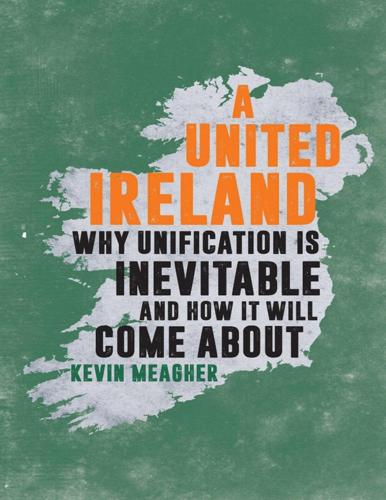
A United Ireland: Why Unification Is Inevitable and How It Will Come About
by
Kevin Meagher
Published 15 Nov 2016
During the 1970s and 1980s, the figures that followed were often stern-looking types with military bearing. Men like Humphrey Atkins, Tom King and Patrick Mayhew fitted the part perfectly. Occasionally, someone more imaginative was appointed, like Jim Prior, or Peter Brook, but there was little political buy-in at the time to progress the dialogue they sought. The Kremlinology is instructive. From the 1970s to the 1990s, the Northern Ireland brief was a political backwater, with ministers expected to remain wedded to the grim status quo that Northern Ireland simply needed a sufficiently robust security response to bring it into line. Indeed, British government policy towards Northern Ireland from the early 1970s to the late 1980s met Einstein’s classic definition of insanity: doing the same thing over and over again and expecting a different result.
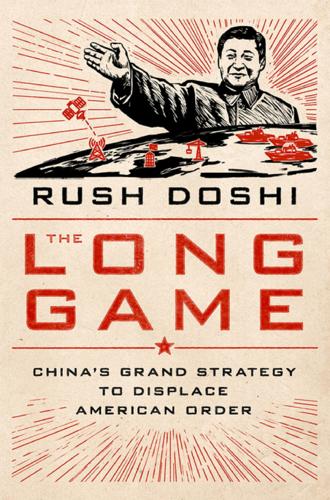
The Long Game: China's Grand Strategy to Displace American Order
by
Rush Doshi
Published 24 Jun 2021
The focus on the Party may at times feel anachronistic to some in the press or media, but not long ago it was widely understood that such a focus would be important. “Western elites were once familiar with the order of battle in communist politics” during the struggle with the Soviet Union, notes the journalist Richard McGregor, and they benefited from and invested in “the mini-industry in academia, think-tanks and journalism known as Kremlinology.”9 But “the collapse of the Soviet empire in the early 1990s took with it much of the deep knowledge of communist systems,” with a steadily diminishing number of experts from academia and the intelligence community left to pass on that knowledge as funding declined.10 China’s economic ascent, for a time, obscured public interest in the Party’s inner workings too, though all this has begun to change.
…
See also hegemonic order International Telecommunication Union (ITU), 282–83, 290, 328–29 Internet of Things, 286–87 Internet sovereignty, 132–33 INTERPOL, 282–83 Intersessional Support Group, 121 Iran, 251–52, 304–5 Iraq War, 80, 111, 132–33 Ivanov, Igor, 128–29 Jackson-Vanik Amendment, 134–35 Jakobson, Linda, 37 Japan and changing US-China relationship, 50–51 and China’s economic strategies, 249 and China’s expansionist goals, 4, 302 and China’s global ambitions, 272 and China’s use of regional institutions, 105–6, 120–22 and Cold War cooperation with US, 47 and context of China’s goals, 6 and economic blunting strategies, 139–40, 153 and multipolarity discourse, 162 and political building strategies, 220–21, 223–24, 232 and Sino-Japanese War, 28 and US asymmetric strategies, 308, 318, 327–28 Jesuits, 39–40 Jiang Zemin and changing US-China relationship, 52 and China’s global ambitions, 262 and China’s perception of US threat, 53–56 and Deng’s “Tao Guang Yang Hui,” 60–61 and departures from Deng’s approach, 175, 176–78 and economic blunting strategies, 134, 138, 141–43, 145, 146–50, 153–54 and implementation of China’s blunting strategy, 65 and military blunting strategies, 69–70, 74, 75, 77, 78–80, 83, 96–98, 99–100 and military building strategies, 192–93, 196–97 and multipolarity discourse, 162, 163–64 and nature of US-China competition, 309–10 and party leadership on foreign policy, 38 and political blunting strategies, 109, 110–11, 112, 114–15, 117–18, 128–30 and rejuvenation ideology, 27, 29, 30–31 and US asymmetric strategies, 309 and “wealth and power” ideology, 28–29 Jin Canrong, 173, 268–69, 270–71, 281–82, 288, 289–90 Jin Liqun, 214, 216, 218, 219, 220–21, 222, 224–25 Ji Shengde, 191 Johnston, Iain, 162 Joint Campaign Theory Study Guide, 200 Joint Comprehensive Plan of Action (JCPOA), 273–74 Joint Declaration on a Strategic Partnership, 125–26 Joint Russian-Chinese Initiative on Strengthening Security in the Asia Pacific Region, 227 joint ventures, 137 journalism, 41 Kai He, 105, 113 Kang Youwei, 28–29 Karachi port project, 207 Kazakhstan, 47, 129, 208–9, 228–29 Kennedy, Conor, 207 Kennedy, John F., 334 Khrushchev, Nikita, 50–51 Kiev (Soviet aircraft carrier), 95–96, 194–95 Kilby, Christopher, 216, 217–18 Kilo-class submarines, 84–85 Kirchner, Jonathan, 249 Kirshner, Jonathan, 250 Kissinger, Henry, 10, 330–31, 332 Ko, Blackie, 191–92 Korean Peninsula, 4, 70–71, 81–82, 132–33, 188–89, 302. See also North Korea; South Korea Korean War, 273–74 Kosovo War, 65–66, 68, 80, 91–92, 111, 132–33, 164–65 Kremlinology, 26 Kristof, Nicholas, 311 Krugman, Paul, 154 Kyrgyzstan, 129, 132 Ladany, Lazlow, 39–41 Lampton, David, 34 Laos, 125–26, 204–5 Latin America, 23 Leading Small Groups, 17, 33–34, 222 leaked documents, 43–44, 56 Lee Kuan Yew, 5–6 legitimacy, 3–4, 19–20 Lenin, Vladimir, 32, 35 Leninism, 25–26, 27, 32–39, 136, 308, 329 Lenovo, 290 Lepore, Jill, 334 Ley, Simon, 40 Le Yucheng, 265–66 Liang Fang, 206–7 Liang Qichao, 28–29 Liaoning aircraft carrier, 191, 199–200 libel laws, 322–23 liberalism, 225, 301–2, 333, 334.
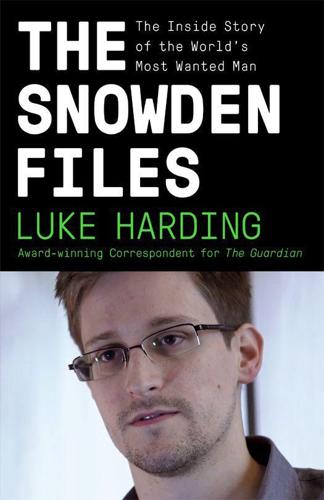
The Snowden Files: The Inside Story of the World's Most Wanted Man
by
Luke Harding
Published 7 Feb 2014
He asserted: ‘Intelligence professionals should pursue actual leads – not dig through haystacks of our private data.’ Meanwhile, Senators Wyden and Udall, the two critics of the NSA in pre-Snowden times, introduced their own draft legislation to stop warrantless snooping on Americans. Wyden suggested that the Senate should have the power to confirm the NSA’s new director. In Kremlinological fashion, the White House had let it be known that it favoured a clear-out at the top. Alexander – a four-star general – confirmed his departure from the NSA in March 2014. (The Wall Street Journal, citing a senior US official, said Alexander offered his resignation in June. The White House declined it.)
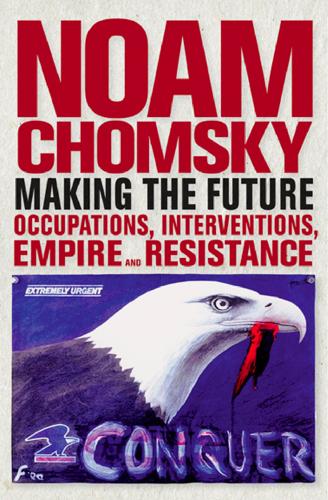
Making the Future: The Unipolar Imperial Moment
by
Noam Chomsky
Published 15 Mar 2010
Containing Iran August 20, 2007 In Washington a remarkable and ominous campaign is under way to “contain Iran,” which turns out to mean “containing Iranian influence,” in a confrontation that Washington Post correspondent Robin Wright calls “Cold War II.” The sequel bears close scrutiny as it unfolds under the direction of former Kremlinologists Condoleezza Rice and Robert M. Gates, according to Wright. Stalin had imposed an Iron Curtain to bar Western influence; Bush-Rice-Gates are imposing a Green Curtain to bar Iranian influence. Washington’s concerns are understandable. In Iraq, Iranian support is welcomed by much of the majority Shiite population.
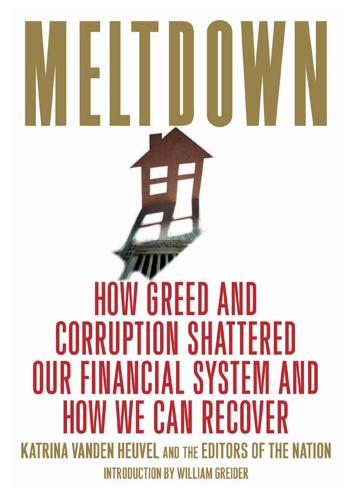
Meltdown: How Greed and Corruption Shattered Our Financial System and How We Can Recover
by
Katrina Vanden Heuvel
and
William Greider
Published 9 Jan 2009
It repeated the denials to Representative Gonzalez last fall, when he pointedly asked about the existence of tapes or transcripts. Facing intensified Congressional scrutiny, Fedsters enjoyed a sudden onrush of recovered memory and acknowledged the existence of the tapes and transcripts. Such secrecy has spawned the Fed-watching industry, a racket reminiscent of Kremlinology, in which every institutional twitch is scrutinized for clues to policy changes. Fed watchers, many of them recent alumni of the central bank, “earn” salaries well into the six figures for their work; greater openness at the Fed would reduce their importance, if not put them out of business, a rare form of unemployment that would be entirely welcome.
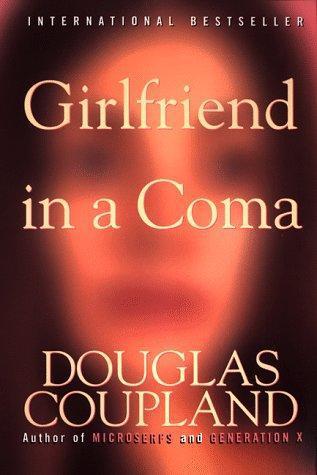
Girlfriend in a coma
by
Douglas Coupland
Published 19 Feb 1998
She provided the idea that some frail essence from a now long-vanished era still existed, that the brutality and extremes of the modern world were not the way the world ought to be - a world of gentle Pacific rains, down-filled jackets, bitter red wine in goatskins, and naive charms. 11 DESTINY IS CORNY After four years of drifting, Linus returned in late 1992.In that time he'd become more remote than ever. "Reading his facial expressions is an exercise in Kremlinology," Hamilton said. "Direct inquiry's no help: Gee,Linus,you'resoremote thesedays-gee,what'sthereason?"Discussion was awkward indeed, and in the end it was simply avoided. His years away were treated as though he'd popped out to get a pack of cigarettes and returned a few minutes later. Wendy met Linus for dinner a week after his low-key return.

Mysteries of the Mall: And Other Essays
by
Witold Rybczynski
Published 7 Sep 2015
Although the term “iconic” is increasingly used to mean simply prominent or attention-getting buildings, architectural icons embody specific messages. The White House, for example, symbolizes the office of the presidency, just as that other iconic big house, Buckingham Palace, represents the British monarchy. During the Cold War, the Kremlin, a walled citadel on the Moscow River, stood for the Soviet regime—and gave us “Kremlinology.” Icons are not only national. Some, such as the Empire State Building and the Eiffel Tower, symbolize cities; “Black Rock,” the spooky granite skyscraper in New York that is the headquarters of CBS, represents a corporation; so did the Chrysler Building and Lever House. Icons can have more than one meaning; the Washington Monument, for example, not only commemorates the first president but also symbolizes the capital city that bears his name and, because it’s overlarge and self-confident, Americanness itself.
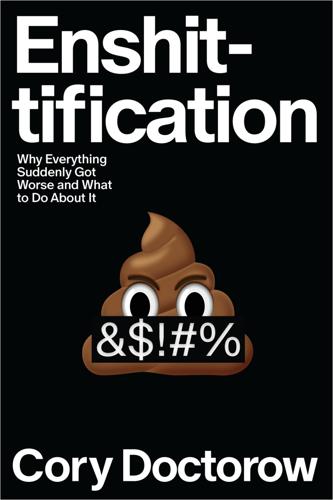
Enshittification: Why Everything Suddenly Got Worse and What to Do About It
by
Cory Doctorow
Published 6 Oct 2025
There’s not much to be gained by trying to read the minds of tech CEOs to determine which of their espoused views are sincerely held and what they’re merely saying to win points with some group of users, customers, lawmakers, investors, or peers. And honestly, it doesn’t matter whether Musk’s strident pronouncements about gender politics, “wokeness,” and other subjects are his true feelings, transient blurts, or acts of calculated image-crafting. Stage Three: A Giant Pile of Shit Rather than playing Twitter Kremlinology, let’s instead look at how Musk’s handling of Twitter post-acquisition is an example of how an enshittification speedrun can boomerang on the enshittifier—and how those bad choices can nevertheless inflict serious harms on users. Musk’s tenure at Twitter’s helm is best understood as a rapid, indiscriminate, and clumsy series of value transfers from end users to Twitter (which is to say Musk, his investors, and his creditors).
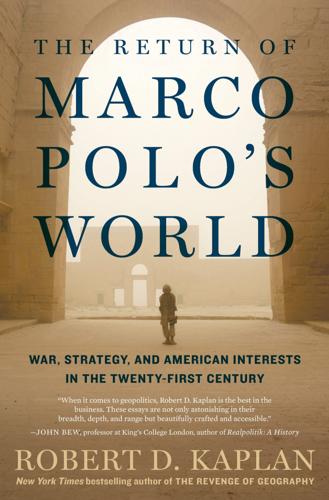
The Return of Marco Polo's World: War, Strategy, and American Interests in the Twenty-First Century
by
Robert D. Kaplan
Published 6 Mar 2018
American church groups, liberal and conservative alike, have united to support Christians fighting for human rights in China, and against Muslims slaughtering Christians in Sudan. Huntington’s ability to account for these and so many other phenomena within a general theory points up the lasting importance of his work. Meanwhile, where are the Kremlinologists who during the Cold War told us that the Soviet system was basically stable; or the Africanists who in the 1960s and 1970s predicted growth and development in places that have since been torn apart by war? How do Huntington’s ideas apply to the current crisis stemming from the terrorist attacks in New York and Washington?
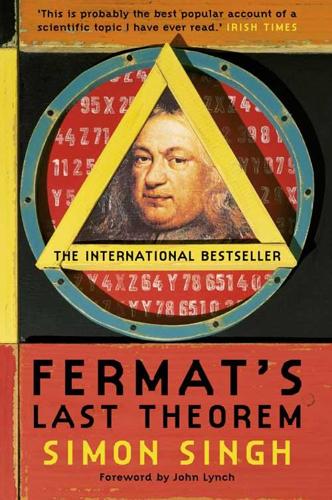
Fermat’s Last Theorem
by
Simon Singh
Published 1 Jan 1997
Conway remembers the atmosphere in the department’s tea-room: ‘We’d gather for tea at 3 o’clock and make a rush for the cookies. Sometimes we’d discuss mathematical problems, sometimes we’d discuss the O.J. Simpson trial, and sometimes we’d discuss Andrew’s progress. Because nobody actually liked to come out and ask him how he’s getting on with the proof, we were behaving a little bit like Kremlinologists. So somebody would say: “I saw Andrew this morning” – “Did he smile?” – “Well, yes, but he didn’t look too happy.” We could only gauge his feelings by his face.’ The Nightmare E-mail As winter deepened, hopes of a breakthrough faded, and more mathematicians argued that it was Wiles’s duty to release the manuscript.
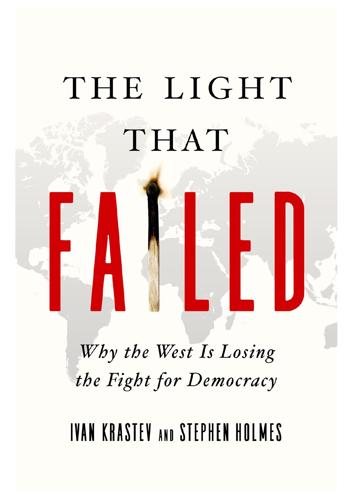
The Light That Failed: A Reckoning
by
Ivan Krastev
and
Stephen Holmes
Published 31 Oct 2019
After watching Mikhalkov’s remake of Lumet’s film at the Russian President’s suburban residence in Novo-Ogarevo, together with Chechnya’s strongman president, Ramzan Kadyrov, Putin allegedly said that the film ‘brought a tear to the eye’.70 Explaining Putin’s tears may be the last refuge of the underemployed Kremlinologist.71 But from Putin’s perspective, if we may be allowed to speculate freely, Mikhalkov’s ironic Russian adaptation of a classic American paean to liberalism captured the dramatic choice facing his country: Russia will either put an end to American-led globalization or American-led globalization will put an end to Russia.
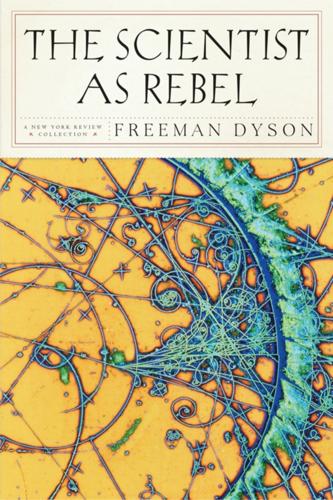
The Scientist as Rebel
by
Freeman Dyson
Published 1 Jan 2006
Once more Over the enemy camp the winging Of swans is heard, swans trumpeting War.2 Ten years later, in January 1918, three months after the Bolshevik seizure of power, amid the chaos and cold of revolutionary Petrograd, Blok wrote his greatest poem, “The Twelve,” which told us more about the nature of Soviet power than a whole library of Kremlinology. The twelve are a group of young soldiers of the Red Guard, marching through the city in a snowstorm, rough and tough and profane and trigger-happy: “Grip your gun like a man, brother. We’ll pump some lead into Holy Russia, Ancient, peasant-ridden, fat-arsed Mother Russia. Freedom, Freedom!
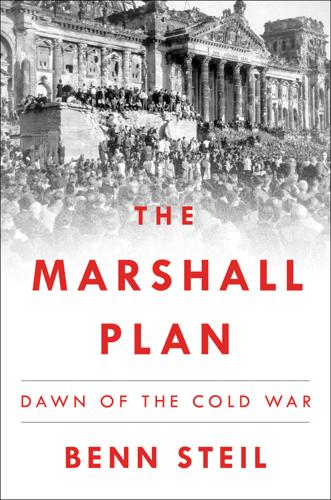
The Marshall Plan: Dawn of the Cold War
by
Benn Steil
Published 13 Feb 2018
But in the end, the statement explained, Truman “decided not to take this step” owing to “the possibilities of misunderstanding.”110 Though the mission was now scotched, Marshall thought his efforts in Paris badly undermined. Indeed, Bevin and Schuman were now less sure than ever whether Truman wanted to start a war, abandon them to one, or both. On October 14, State Department Kremlinologist Foy Kohler cabled Marshall from Paris: Stalin, he said, had concluded that there was now “no chance of preventing” the creation of a West German state “by negotiation, even at the price of concessions with respect to Berlin.” The only way he saw to “[bring] about the destruction of the London decisions and [disrupt] the . . . unity of Western Powers” was, therefore, to undermine their governments.
…
Confronted with a problem, he would insist that “if you can’t do anything about it, just stop thinking about it,” recalled his daughter Mary. “Get on with something!”118 Though Kennan’s office continued to adjoin the secretary of state’s, he would lose the access he had under Marshall. Acheson dismissed Kremlinologists like Kennan as “dangerous” soothsayers pushing “uncommunicable” guesses that “must be accepted by those who have not the same occult power of divination.”119 He ordered that Policy Planning Staff director memos should go to the assistant secretaries rather than to himself personally. Thus seeing his influence wane toward irrelevance, feeling at times like “a court jester,”120 Kennan would in December 1949 choose to depart from the think tank he had fathered at State.121 Under his successor, the less cerebral but more fashionably hawkish Paul Nitze, PPS would be more tank and less think.
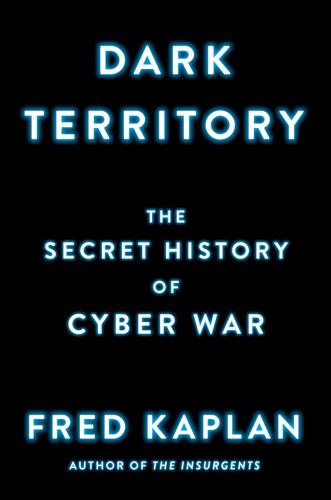
Dark Territory: The Secret History of Cyber War
by
Fred Kaplan
Published 1 Mar 2016
It concluded that the change wouldn’t take place all at once or uniformly; that the NSA would have to innovate in order to meet the demands (and intercept the communications) of the new world, while still monitoring the present landscape of telephone, radio, and microwave signals. Studeman’s second paper, an analysis of NSA personnel and their skill sets, concluded that the balance was wrong: there were too many Kremlinologists, not enough computer scientists. When Inman was director, he’d taken a few small steps to bring the technicians into the same room as the SIGINT operators and analysts, but the effort had since stalled. Most of the agency’s computer experts worked in IT or maintenance. No one in SIGINT was tapping their expertise for advice on vulnerabilities in new hardware and software.
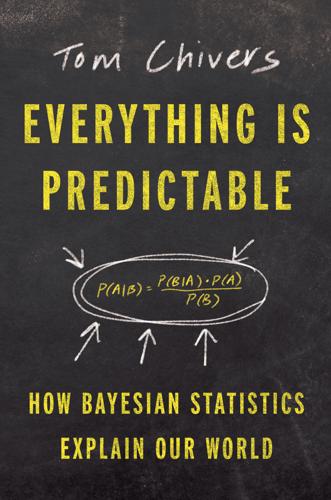
Everything Is Predictable: How Bayesian Statistics Explain Our World
by
Tom Chivers
Published 6 May 2024
Only a “well-placed spy” in the KGB’s London headquarters, who passed the info on to Washington via British intelligence, alerted the White House to how close they had come to accidentally sparking a holocaust.23 In this tense atmosphere, the National Research Council, part of the US National Academies of Sciences, received a grant to put together a panel tasked with the job of “preventing nuclear war.” The panel included some very high-profile researchers. Amos Tversky, whom we know for his research with Daniel Kahneman, was among them. Three other panel members had already, by that point, won a Nobel. Others were high-ranking military officers, Kremlinologists, government officials. But one was, in his own words, “by far the least impressive member of the panel”24—a thirty-year-old freshly minted associate professor of political psychology at UC Berkeley called Philip Tetlock. While Tetlock was there, he noticed something. Everyone agreed that after his inevitable and imminent death Chernenko would be replaced by another grim-faced politburo lifer—but they disagreed as to why.
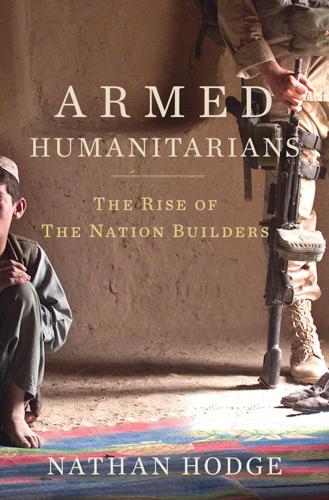
Armed Humanitarians
by
Nathan Hodge
Published 1 Sep 2011
.* The U.S. military, Barnett was basically saying, wanted bellum: a straightforward fight against an enemy whose soldiers wore uniforms and had regular military formations. What it was engaged in, however, was guerra, the thankless, ambivalent task of playing globo-cop. And it was not equipped to handle the latter. Had the Berlin Wall never come down, Barnett probably would probably have made a career as a Kremlinologist, counting ICBM payloads in advance of arms control talks with the Soviets. But his timing was off: He graduated from Harvard University’s Soviet area studies program in 1986, just as Mikhail Gorbachev began accidentally dismantling the Soviet system through perestroika and glasnost. He completed his Ph.D. in 1990—his dissertation compared Romanian and East German policies in the Third World—just a year before the final collapse of the Soviet Union.
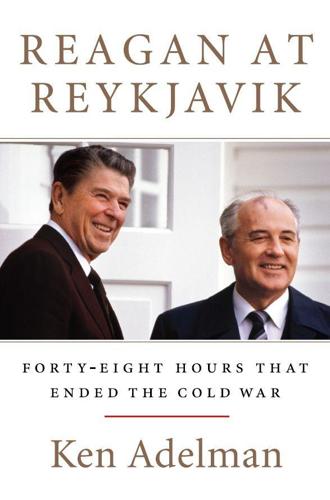
Reagan at Reykjavik: Forty-Eight Hours That Ended the Cold War
by
Ken Adelman
Published 5 May 2014
The years before Reykjavik had been a bad patch for Soviet leaders. Some hope sprang, after nearly twenty years of stagnation under Leonid Brezhnev, in the spring of 1983 when Yuri Andropov came to power. The former KGB head was seen as the man who could modernize the U.S.S.R. at home and abroad. Kremlinologists proclaimed his elevation a good thing, because Andropov would be both ready and able to change things. Ready because only the KGB had access to the information that was available abroad, showing just how far behind the U.S.S.R. had slipped—compared not only with other industrialized nations, but also with its satellite minions in Eastern Europe.
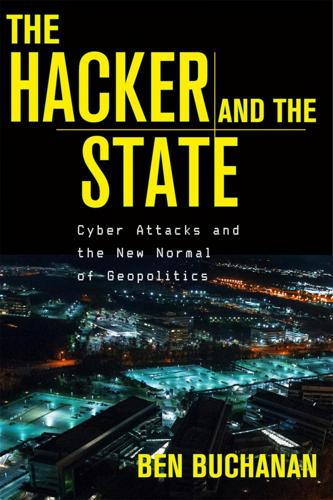
The Hacker and the State: Cyber Attacks and the New Normal of Geopolitics
by
Ben Buchanan
Published 25 Feb 2020
They can die heroically, dramatically, and in a manner that guarantees that the action cannot stop there.”7 The Soviets knew that no president could suffer the loss of thousands of Americans and not retaliate. The troops lent credibility to the United States’ signal of commitment to the continent. Their presence helped keep the peace. The importance of signaling resonated in the highest levels of government. Some senior foreign policy decision-makers fancied themselves Kremlinologists who could interpret the signals of Soviet leaders and deduce how best to respond. Presidents and premiers signaled to each other, too: the most iconic moments of statecraft in the Cold War were Kennedy and Khrushchev’s battle of wills in the Cuban Missile Crisis and Reagan and Gorbachev’s tense negotiations at Reykjavik.
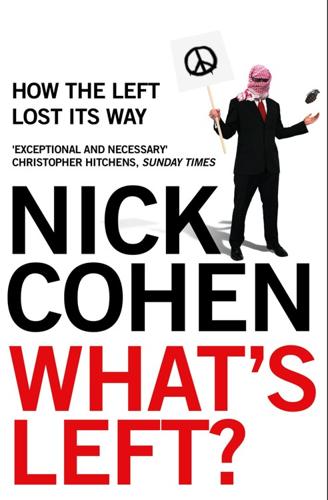
What's Left?: How Liberals Lost Their Way
by
Nick Cohen
Published 15 Jul 2015
Their record as Nazi Germany’s most implacable enemy allowed anti-fascist leftists to ignore Stalin’s crimes and excoriate Britain and France for failing to stand beside him in the struggle against Hitler. When Britain and France finally inched towards doing what they wanted by telling Hitler that an invasion of Poland would mean war, Kremlinologists noticed that the Soviet Union was toning down its condemnations of Hitler. The diplomatic traffic between Berlin and Moscow increased through the summer of 1939, and diplomats started to reflect on an incredible thought: perhaps the communists and the fascists were preparing to form an alliance.
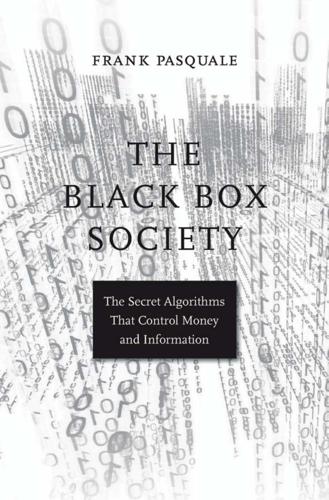
The Black Box Society: The Secret Algorithms That Control Money and Information
by
Frank Pasquale
Published 17 Nov 2014
The original PageRank patent, open for all to see, clandestinely accumulated a thick crust of tweaks and adjustments intended to combat web baddies: the “link farms” (sites that link to other sites only to goose their Google rankings), the “splogs” (spam blogs, which farm links in the more dynamic weblog format); and the “content farms” (which rapidly and clumsily aggregate content based on trending Google searches, so as to appear at the top of search engine result pages, or SERPs). Beneath the façade of sleek interfaces and neatly ordered results, guerrilla war simmers between the search engineers and the spammers.39 The war with legitimate content providers is just as real, if colder. Search engine optimizers parse speeches from Google the way Kremlinologists used to pore over the communiqués of Soviet premiers, looking for ways to improve their showing without provoking the “Google Death Penalty” that de-indexes sites caught gaming the system. And just as wartime gives governments reasons (and excuses) to hide their plans from the public, Google has used the endless battle against spam and manipulation to justify its refusal to account for controversial ranking decisions.40 Google is an ambitious company.
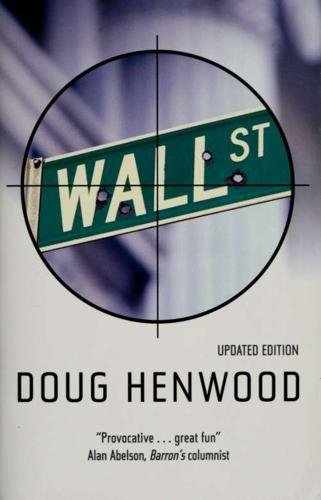
Wall Street: How It Works And for Whom
by
Doug Henwood
Published 30 Aug 1998
The threat of subpoenas from Gonzalez caused a sudden bout of recovered memory syndrome at the Fed; for 17 years, it had denied that it even took detailed minutes at FOMC meetings; in fact, it had been taping and transcribing them all along. The Republican takeover of Congress in 1994, however, ended Gonzalez' reign of terror. Still, despite this whiff of glasnost, the Fed remains an intensely secretive institution. This opaqueness has spawned an entire Fed-watching industry, a trade reminiscent of Kremlinology, in which every institutional twitch is scrutinized for clues to policy changes. Fed watchers "earn" salaries well into the six figures for such work; greater openness at the Fed would reduce their importance, if not put them out of business, a rare form of unemployment that would be entirely welcome.
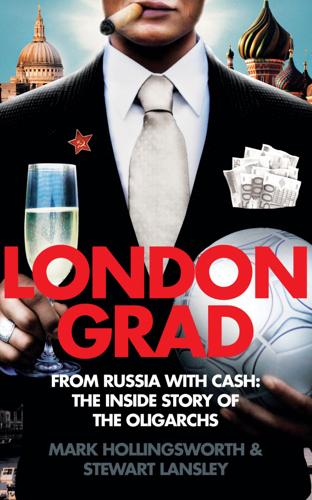
Londongrad: From Russia With Cash; The Inside Story of the Oligarchs
by
Mark Hollingsworth
and
Stewart Lansley
Published 22 Jul 2009
An American citizen, he made his fortune in Russia, and became a founding investor of the London business newspaper City AM and an outspoken critic of Putin. He vanished from his holiday home in Latvia on 16 March 2008, leaving behind a pool of blood. To this day no body has been found. One theory circulating among Kremlinologists was that he was murdered over a business dispute with a senior figure in Putin’s administration. Others speculated that he was about to make public details of fortunes acquired by top Kremlin officials. The mystery deepened further when, in October, his wife, the model Natalya Belova, and their three-year-old son also vanished.
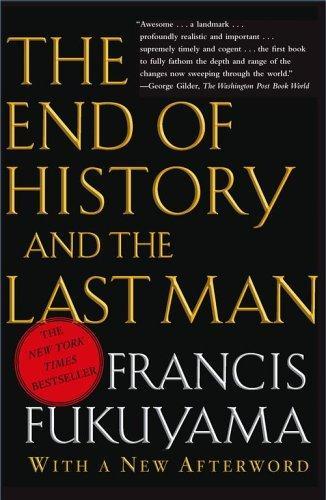
The end of history and the last man
by
Francis Fukuyama
Published 28 Feb 2006
Pye, “Tiananmen and Chinese Political Culture,” Asian Survey 30, no. 4 (April 1990b): 331-347. 18 This was suggested by Henry Kissinger in “The Caricature of Deng as Tyrant Is Unfair,” Washington Post (August 1, 1989), p. A21. 19 Ian Wilson and You Ji, “Leadership by ‘Lines’: China’s Unresolved Succession,” Problems of Communism 39, no. 1 (January-February 1990): 28-44. 20 Indeed, these societies were regarded as so different that they were studied by separate disciplines of “Sinology,” “Sovietology,” or “Kremlinology,” that paid attention not to the broad sweep of civil society, but only to politics, its supposed sovereign, and often the politics of a group of ten or twelve powerful men at that. Chapter 4. The Worldwide Liberal Revolution 1 Dokumente zu Hegels Entwicklung, ed. J. Hoffmeister (Stuttgart, 1936), p. 352. 2 An overview of this change is given, inter alia, in Sylvia Nasar, “Third World Embracing Reforms to Encourage Economic Growth,” New York Times (July 8, 1991) p.
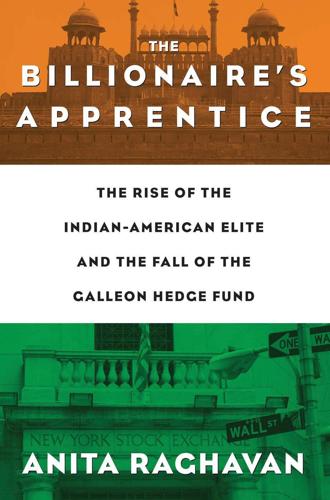
The Billionaire's Apprentice: The Rise of the Indian-American Elite and the Fall of the Galleon Hedge Fund
by
Anita Raghavan
Published 4 Jun 2013
After the jurors pick a restaurant and put in their food orders, William Donald, Judge Holwell’s courtroom deputy, heads downstairs to collect the food deliveries, which pass tight security: they are X-rayed. Over the past two weeks, ever since the jury had started its deliberations, word of the jury’s lunch plans took on a form of legal Kremlinology. As long as the jury was ordering lunch, deliberations would likely drag into the afternoon. At 10 a.m., the jury foreman handed back the menus. He told the court security officer they wouldn’t be needing them. Twenty minutes later, the jury foreman sent a note to Judge Holwell. After eleven days of deliberations that were restarted midway because a sick juror had to be replaced, the jury of eight women and four men had reached a verdict.
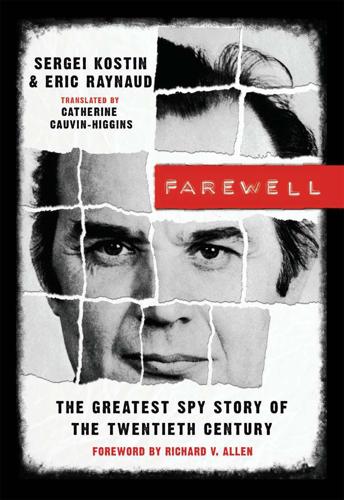
Farewell
by
Sergei Kostin
and
Eric Raynaud
Published 14 Apr 2011
Vetrov’s probable reasoning about the situation matched most of his compatriots and contemporaries: the Brezhnevian regime was a disgrace, but Marxism-Leninism was a just cause. Or, as went a popular sarcasm about Marxist theories at the time, “Communism is inevitable.” The feeling that communism was deeply entrenched in the USSR was shared not only by the Soviets but also by most “Kremlinologists.” From the Russian standpoint, nothing in Vetrov’s behavior substantiated the assumption that he was a shadow fighter against the communist system or a trailblazer for perestroika. That assumption, which seemed to be a certitude for the DST and the French media, was laughable to the Soviets who had known Vetrov.
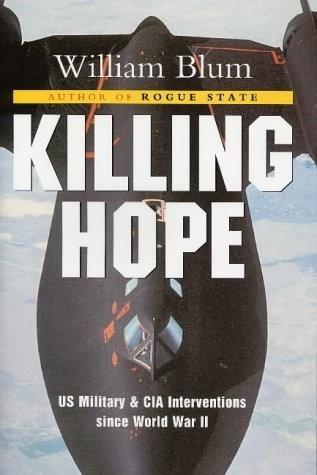
Killing Hope: Us Military and Cia Interventions Since World War 2
by
William Blum
Published 15 Jan 2003
The former president chose not to offer the slightest hint that the United States had anything to do with the planning or instigation of the coup, and indicated that his administration had only the most tangential of connections to its execution.49 (When Soviet leader Nikita Khrushchev's memoirs were published in the West, the publisher saw fit to employ a noted Kremlinologist to annotate the work, pointing out errors of omission and commission.) Thus it was that the educated, urbane men of the State Department, the CIA and the United Fruit Company, the pipe-smoking, comfortable men of Princeton, Harvard and Wall Street, assured each other that the illiterate peasants of Guatemala did not deserve the land which had been given to them, that the workers did not need their unions, that hunger and torture were a small price to pay for being rid of the scourge of communism.

Active Measures: The Secret History of Disinformation and Political Warfare
by
Thomas Rid
The Post understood this dilemma, and did something unexpected: it ran two remarkable articles in the following two days, articles that would agree with the Soviets, and challenge the authenticity of The Penkovsky Papers. Victor Zorza had devoured an advance copy of Penkovsky’s book. Zorza, a Polish-born Briton, was a prolific investigative journalist with a microscopic attention to detail, and one of the world’s foremost Kremlinologists. He quickly noticed that something was off. A small Russian publishing house based in West Germany had noticed the announcements of the memoirs in the international press. The press reached out to Doubleday, the book’s U.S. publisher, offered DM 1,000 for the Russian-language rights, and requested the original manuscript in Russian.
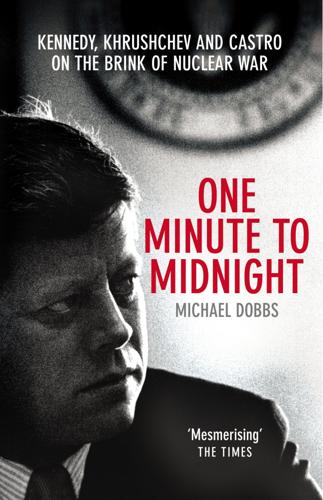
One Minute to Midnight: Kennedy, Khrushchev and Castro on the Brink of Nuclear War
by
Michael Dobbs
Published 3 Sep 2008
Over at the CIA, officials noted that the premier had not been seen in public for two days. Nobody guessed the truth, which was that Khrushchev himself had detected a wavering in the U.S. position and decided to exploit it. One thing was certain, said Llewellyn Thompson, the ExComm's inhouse Kremlinologist. The latest missive from Khrushchev was the official position of the Soviet leadership. "The Politburo intended this one." 11:17 A.M. SATURDAY, OCTOBER 27 (10:17 A.M. HAVANA) A U.S. Navy Crusader flew over the Soviet command post in El Chico almost at the same time the generals decided to shoot down Target Number 33.
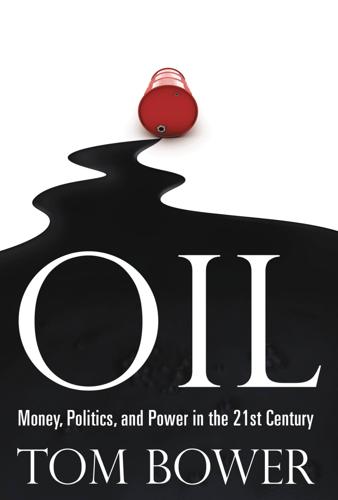
Oil: Money, Politics, and Power in the 21st Century
by
Tom Bower
Published 1 Jan 2009
Chevron’s alignment with the Kazakh government against Moscow offended Putin, who refused to meet O’Reilly. Frustrated by John Browne’s smooth diplomacy in using Tony Blair to engage Putin and finalize his deal, O’Reilly urged former US secretary of state George Shultz and Condoleezza Rice to advance Chevron’s case. But, like the diplomats at the American embassy and the Kremlinologists hired by Chevron, they were unable to offer insight or access to Sechin or Putin. “It’s too early to see Putin,” O’Reilly told Khodorkovsky, to conceal Chevron’s exclusion. “We’ve got to keep these negotiations confidential.” In essence, Chevron’s executives were offering Khodorkovsky shares for nearly the same valuation in a merged company as Raymond was proffering in cash.
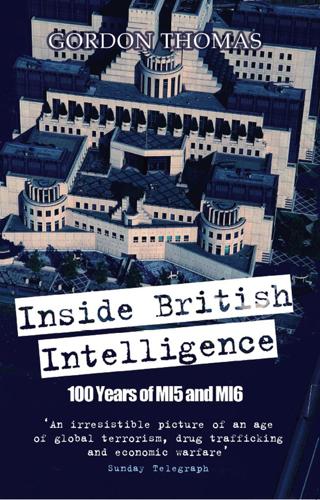
Inside British Intelligence
by
Gordon Thomas
Despite the high risks when, as Asquith later said, “a hundred things could have gone wrong,” the operation had passed without incident. Waiting across the Finnish border was the Helsinki station commander, Margaret “Meta” Ramsay. She drove Gordievsky to Oslo, from where he caught a flight to London the next day. Waiting for him at Heathrow were Curwen, Scarlett, and MI6’s principal Kremlinologist, Gordon Barrass. AFTER LUNCH SCARLETT DROVE Gordievsky and Barrass to Fort Monkton, the MI6 training school at Gosport on the south coast. For several weeks he was debriefed, and his revelations created a fifty-page document titled “Soviet Perception of Nuclear Warfare.” A copy was sent to William Casey, the director of the CIA, the thirteenth to hold the position.
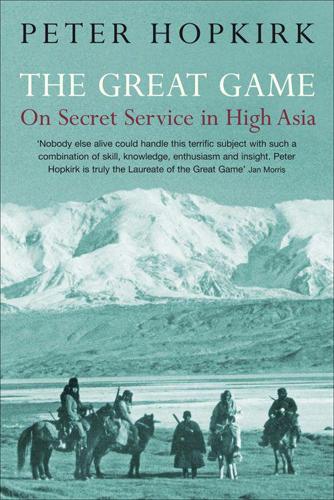
The Great Game: On Secret Service in High Asia
by
Peter Hopkirk
Published 2 Jan 1991
Another British visitor, Thomas Raikes, writing in 1838, drew attention to the menace of Russia’s rapidly growing military and naval power, and forecast that Britain and Russia would very soon be at war. Nor were such views confined to the British: A celebrated French observer, the Marquis de Custine, who toured Russia in 1839, returned with similar forebodings about St Petersburg’s ambitions. In his La Russe en 1839, a work still quoted by Kremlinologists today, he warned: ‘They wish to rule the world by conquest. They mean to seize by armed force the countries accessible to them, and thence to oppress the rest of the world by terror. The extension of power they dream of . . . if God grants it to them, will be for the woe of the world.’ The British press largely shared this sense of doom.

Aerotropolis
by
John D. Kasarda
and
Greg Lindsay
Published 2 Jan 2009
No one will lend Dubai no-questions-asked money ever again. It will have to pay its own way. Dubai Inc. has endured heavy restructuring since. Many of Sheikh Mo’s top lieutenants have been merged or purged; high-profile developers have been jailed for fraud. Financial markets wait for the other shoe to drop, while emirates Kremlinologists wonder what price Abu Dhabi will ultimately charge for its help. (Naming the onetime Burj Dubai after its ruler Sheikh Khalifa bin Zayed Al Nahyan is suspected to be a down payment.) In hindsight, Dubai was almost fatally overleveraged in hype as well as debt. Unwinding its untenable positions entailed the world’s awe cur-dling into schadenfreude.
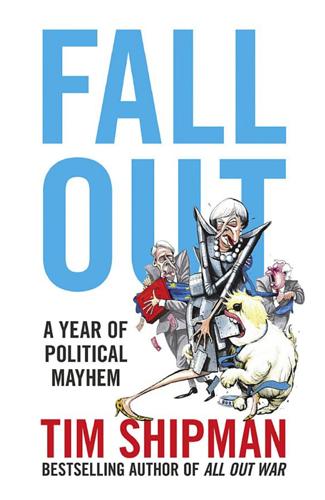
Fall Out: A Year of Political Mayhem
by
Tim Shipman
Published 30 Nov 2017
Barnier had already shown himself an assiduous reader of the British newspapers, quoting back stories about the prospect of queues at the border in his conversations with British officials. The Shard event resolved very little, but it allowed Davis and Hammond to be pictured together. ‘What mattered more was the photo,’ a minister said. ‘Because everyone was trying to do their Kremlinology and saying, “Davis is in one corner and Hammond is in the other.” And they weren’t.’ Davis’s support emboldened Hammond to push things further. On 12 December, in front of the Treasury select committee, the chancellor announced that a transitional arrangement would be necessary after Brexit because there was not time to secure a full deal in the two-year period of negotiations.
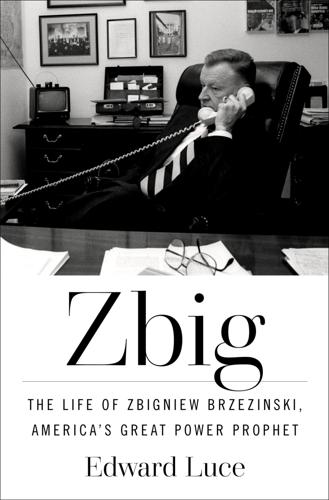
Zbig: The Life of Zbigniew Brzezinski, America's Great Power Prophet
by
Edward Luce
Published 13 May 2025
Brzezinski had many enemies. With the fleeting exception of Albright, his network of loyal friends stayed intact. He relished his cameo moments in presidential campaigns. But they were a relatively minor call on his time compared to his unceasing machinations behind the Iron Curtain. His grasp of Kremlinology had always been deeper than his feel for US politics. The peaceful collapse of the USSR and the West’s Cold War victory helped consummate his rehabilitation among Democrats. It could hardly have been otherwise: 1989 brought the crystallization of his life’s work. For the better part of three decades, Brzezinski had been predicting the demise of the USSR.
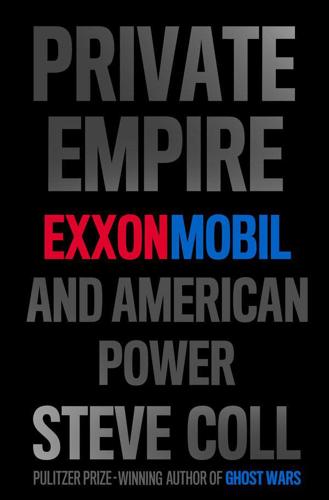
Private Empire: ExxonMobil and American Power
by
Steve Coll
Published 30 Apr 2012
Retired executives of the Raymond era took one another out to dinner in Houston, Dallas, and elsewhere and talked about whether Tillerson had enough of the guts and firmness that Raymond had mustered to drive ExxonMobil’s financial performance. Tillerson’s remarks to Wall Street analysts increasingly made it clear that he was aware of these dissenters. It required the equivalent of Kremlinology to perceive Tillerson’s public replies to these dissenting factions, but his rejoinders were detectable. At analyst meetings, Tillerson started to use 2006, the year he took the top job, as the basis for reporting about—and boasting about—ExxonMobil’s financial performance. He ignored the Raymond years, and he went so far as to explain how his leadership had extracted profitability from one tough project, the Kearl oil sands play in Canada, because he had made flexible analytical judgments about projected rates of return that would not have been taken “five, six, eight years ago,” when Raymond was in charge.

Reaganland: America's Right Turn 1976-1980
by
Rick Perlstein
Published 17 Aug 2020
Then he assigned homework: provide a written evaluation of the loyalty of staffers in their employ; and tender him letters of resignation, which he would subsequently decide whether to accept or reject. A president firing people was routine. Doing it en masse and without warning was shocking. “Had a purge like the president’s taken place in the Soviet Union,” the Nation observed, “Kremlinologists would have been pontificating about the problems of transition in a totalitarian state.” The next forty-eight hours were a deathwatch. Speaking of Kremlinologists, NPR brought in Izvestia’s Washington correspondent to study where officials were standing in photographs of public events to discern who was in President Carter’s favor and who was not—like American Soviet Union experts did on May Day in Moscow.
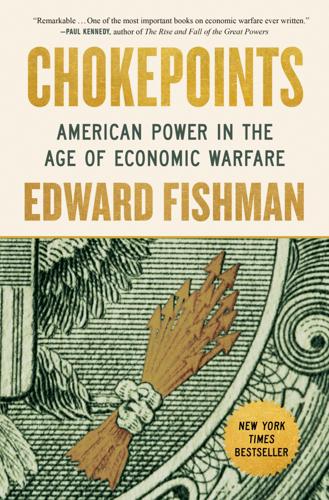
Chokepoints: American Power in the Age of Economic Warfare
by
Edward Fishman
Published 25 Feb 2025
After a few heated debates, they settled on targeting the assets of Putin’s inner circle—the small group of friends Putin had elevated into key positions across Russia’s economy. Proximity to power had won these men fabulous wealth, which they used to buy up Mediterranean villas and supersized yachts. They also safeguarded Putin’s own spectacular riches, and many Kremlinologists believed these were the only people who truly had the Russian president’s ear. Victoria Nuland pushed hard for going after the cronies. “The theory of the case was that they would go to Vova and say it wasn’t worth it,” she said, using a nickname for Putin. “We definitely thought they were a circle of influence around him, that Ukraine didn’t matter to them, but money did.”

Seveneves
by
Neal Stephenson
Published 19 May 2015
At the same time, she and the others got very little information from the planet, and had to piece things together from a jumble of clues. She’d compared notes on this with Ivy, who had confirmed that even she had little to go on, and what she did hear contradicted itself from hour to hour. It had all become Kremlinology. Back in the heyday of the Soviet Union, the only way for Westerners to guess what was going on there was to look at the lineup of dignitaries on Lenin’s Tomb in the May Day parade, and riddle it out from the seating chart and who shook hands with whom. Now Dinah was doing the same thing with these three faces on the screen.
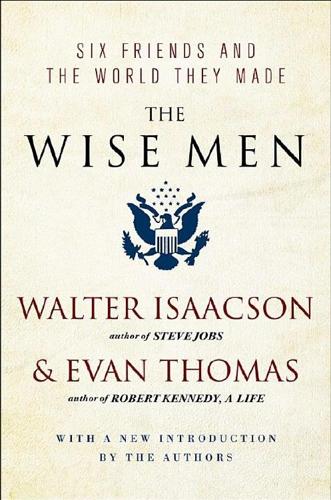
The Wise Men: Six Friends and the World They Made
by
Walter Isaacson
and
Evan Thomas
Published 28 Feb 2012
Only one figure in the Democrats’ inner council was able to “maintain credibility” and still insist that it was possible to reason with the Soviets. Averell Harriman, recalls Galbraith, would begin discussions by talking about “what a bunch of bastards the Soviets were” but then he would say, “but we’ve got to deal with them.” Like his tutors in Kremlinology, Kennan and Bohlen, Harriman believed that the Soviets were paranoid, dangerous, yet ultimately conservative and not eager to start a war by invading Europe. Harriman argued that it was possible, by diligence and patience, to negotiate agreements with the Soviets, especially if he was the negotiator.
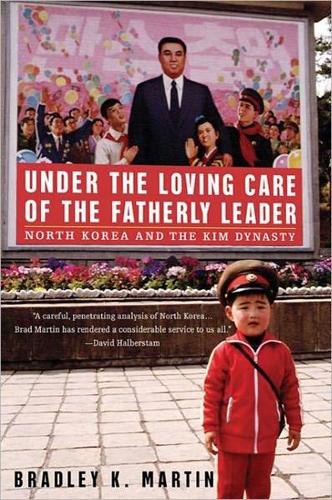
Under the Loving Care of the Fatherly Leader: North Korea and the Kim Dynasty
by
Bradley K. Martin
Published 14 Oct 2004
No outsider can know for sure about much of anything that happens in North Korea, of course. But there are always the Pyongyang-watcher’s fallback techniques of analysis based on scraps of information from all kinds of sources including defector testimony and the regime’s news media and propaganda—the sort of “tea leaf reading” that also characterized the work of kremlinologists and sinologists. Thus, my attempt to solve another, seemingly unrelated mystery—-why the DPRK had barred United Nations World Food Program aid monitors from thirty-nine of the North’s counties—turned out to be instructive. My findings suggested that Kim Jong-il and company so far might have avoided falling into the trap of Phase Four, as Collins defined it.